

13 Important Classical Education Books You Must Read
This post may contain affiliate links. For more information, please read my disclosure policy .
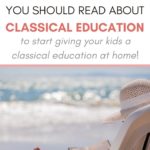
By the time my oldest kid was 4, I knew I wanted to give my children a classical education at home.
But I had no idea how to go about doing it. I googled, I read, and I searched.
It wasn’t until I started reading these 13 amazing classical education books that I understood how I could give my kids a classical education at home.
13 Classical Education Books to Get You Started
So if you’re looking to learn more about classical education, these classical education books are the place to start!
1. The Well-Trained Mind

While I knew I wanted to give my kids a classical education, The Well-Trained Mind was the book on classical education that gave me the vision. I could see how to educate my kids and how to start on the path.
It’s not a book on the philosophy of classical education, but rather a how-to book that will hold your hand as you educate your children.
The Well-Trained Mind has set on my desk for the last 18 years.
2. Teaching the Trivium: Christian Homeschooling in a Classical Style

Teaching the Trivium has a different approach to the early years than the Well-Trained Mind. They believe in a relaxed education for young kids. You teach kids basic reading, writing, and math but focus on exploration and character.
The idea is to save the heavy academics until the kids are older.
Teaching the Trivium: Christian Homeschooling in a Classical Style is an excellent book to read, especially as a comparison to The Well-Trained Mind .
3. The Core: Teaching Your Child the Foundations of Classical Education

The author of The Core is one of the founders of Classical Conversations . I enjoyed reading The Core , although it deals specifically with grammar stage memorization.
It also gives you insight into the philosophy behind Classical Conversations.
The Core: Teaching Your Child the Foundations of Classical Education is well worth reading, especially if you’re interested in Classical Conversations.
4. Designing Your Own Classical Curriculum: A Guide to Catholic Home Education

Designing Your Own Classical Curriculum has been on my reading list for a very long time. I think this year is the year to actually read it, as I’ve heard wonderful things about it through the years.
Laura Berquist walks you through how to design and pull together your own liberal arts curriculum.
If you’re looking for classical education books that will give you guidance on how to pull a classical curriculum together for your kids, check out Designing Your Own Classical Curriculum: A Guide to Catholic Home Education .
5. The Liberal Arts Tradition: A Philosophy of Christian Classical Education

I’ve read The Liberal Arts Tradition a couple of times now. The Well-Trained Mind is a how-to give your kids a classical education. The Liberal Arts Tradition gives you the philosophy behind a Christian classical education.
It’s one of those books that has you writing comments and thoughts in the margin.
The Liberal Arts Tradition: A Philosophy of Christian Classical Education is a book you’ll read and reread over the years.
6. Climbing Parnassus: A New Apologia for Greek and Latin

I read Climbing Parnassus years ago. It’s an inspiring and memorable book. The author speaks of why we need to teach Latin and Greek to our children.
It inspired me to attempt Greek in my homeschool and to put a greater emphasis on Latin.
Climbing Parnassus: A New Apologia for Greek and Latin is an excellent book to read to understand why classical education puts such an emphasis on learning Greek and Latin.
7. The Devil Knows Latin: Why America Needs the Classical Tradition

The Devil Knows Latin is another fascinating book I read years ago. Like Climbing Parnassus, The Devil Knows Latin argues that you must add Latin and Greek back into the curriculum.
By removing the languages America has severed ties with our literature, history, political, and philosophical traditions.
The Devil Knows Latin: Why America Needs the Classical Tradition promotes a radical change to the elementary grades.
8. The Latin-Centered Curriculum

Read The Latin-Centered Curriculum after you’ve read Climbing Parnassus and The Devil Knows Latin.
Climbing Parnassus and The Devil Knows Latin give you the philosophy and why of putting Latin and Greek at the center of the curriculum.
The Latin-Centered Curriculum tells you HOW to do it.
9. Simply Classical: A Beautiful Education for Any Child

Everyone thinks classical education is only for gifted children, and that’s simply not true.
Simply Classical: A Beautiful Education for Any Child lays out an inspiring story of how her family used classical education to homeschool their special needs children.
Cheryl Swope lays out a convincing argument that classical education is for all children.
10. Consider This: Charlotte Mason and the Classical Tradition

Consider This: Charlotte Mason and the Classical Tradition explores how Charlotte Mason used the classical tradition as she developed her educational philosophy.
This is not a how-to book on homeschooling and classical education.
Rather this is a book that will bring clarity to your homeschool.
11. The Living Page: Keeping Notebooks with Charlotte Mason

The Living Page: Keeping Notebooks with Charlotte Mason Have you ever considered keeping a commonplace book or having your kids notebook their way through history and science?
Then The Living Page: Keeping Notebooks with Charlotte Mason is the book you need. It walks you through why and how to set up keeping notebooks.
And why keeping notebooks will help your children engage with their studies.
12. Teaching from Rest: A Homeschooler’s Guide to Unshakable Peace

I love Teaching from Rest: A Homeschooler’s Guide to Unshakable Peace . Sarah Mackenzie teaches classical homeschoolers how to stop being a slave to your curriculum and take control of your homeschool.
You are no longer focused on adding rigor and more lessons to the day.
Instead, you’re guided in how to create a vision for your homeschool so you can focus on what’s truly important.
13. Better Together: Strengthen Your Family, Simplify Your Homeschool, and Savor the Subjects That Matter Most

One of the techniques Sarah Mackenzie recommends in Teaching from Rest to simplify your homeschool is to add morning time to your homeschool.
Pam Barnhill teaches you how to add morning time to your day. She walks you through the 3 critical components of morning time and how to implement morning time with your kids!
Better Together gives you the guidance you need to transform your classical homeschool!
So if you want to know how to give your children a classical education, read these 13 classical education books. They will give you the guidance and vision you need to create an amazing homeschool for your kids.
Which classical education books have you read?
Check out The Massive Guide to Homeschool Reading Lists for more awesome books to read!
RECOMMENDED READING
- Do You Really Know What Classical Education Is?
- 101 Reasons to Give Your Kids a Classical Education
- How to Easily Start Classical Education at Home

Similar Posts

7 Plan B Day Ideas When You Don’t Want to Homeschool
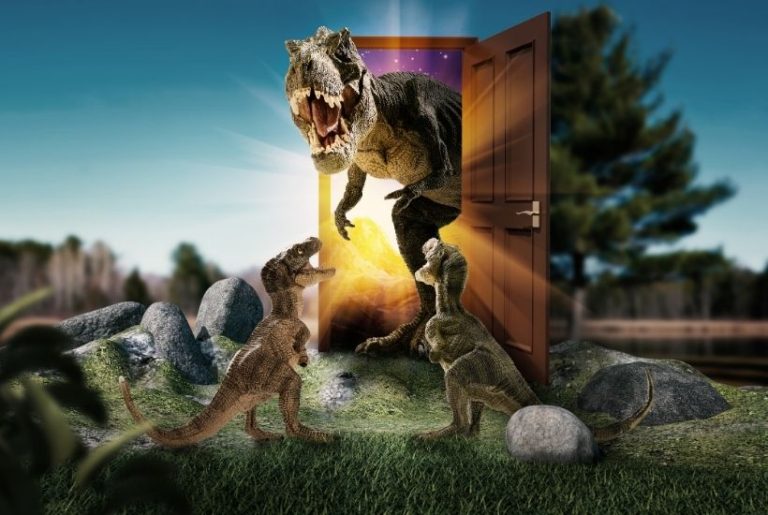
21 Awesome Dinosaur Books Preschoolers Will Love

3 Easy Solutions When Kids Fight Homeschooling
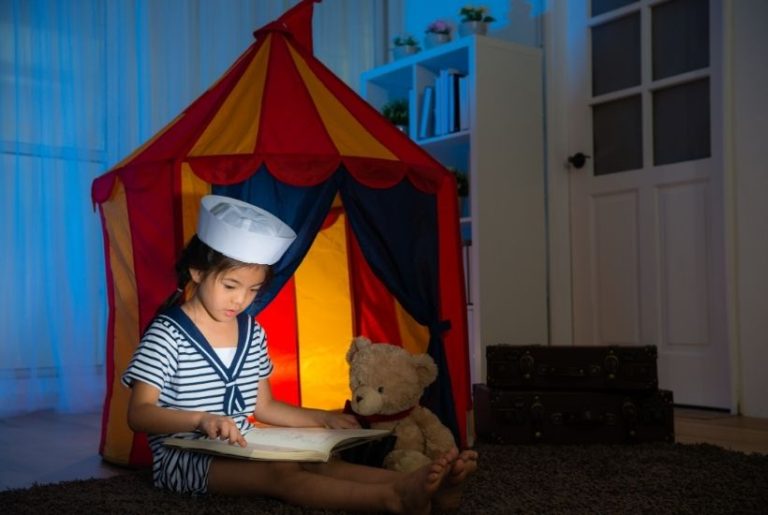
21 Wonderful and Amazing History Books for Kids

Here Are the Plans for the 2019-2020 School Year

Classically Homeschooling 2014-2015 Curriculum Choices
25 comments.
Wow, now that’s an impressive list of books. Quite ambitious. I like the idea of the books, but I don’t think that I could commit to reading them all in a year. I own and have read 3 of them { The Well Trained Mind, Teaching the Trivium, and The Latin Centered Curriculum }, and read a 4th { Climbing Parnassus }. I’d be totally curious about your thoughts though. :o)
Well, I’ve put off reading some of them quite a while so there’s no time like the present for working through the books. I’m also looking for inspiration and encouragement as my youngest 2 children start their journey through classical education. 🙂
Me! I’m interested! It’ll give me the push to finish that meaty book!
Yay! I’m thinking about starting with The Well-Trained Mind as we enter into summer planning. 🙂
I’ve considered reading The Liberal Arts Tradition. I just finished reading Consider This not too long ago. Good book. It really helped give a broader, or should I say a more traditional classic view of the concept of the trivium. Very interesting! I had to laugh about your friend commenting that you should have read Charlotte Mason’s Volume 6 first. Funny! Volume 6 is the ONLY volume I have read fully. I’ve only read portions of CM’s other volumes. I consider us to have a classical Charlotte Mason foundation for our homeschool now. There are some things I had to get past with reading CM’s books. I have to admit that I had a time in the last year or two where I was pretty much ready to toss the CM method out the window except for a few key aspects of it. You know….the whole throw the baby out with the bathwater analogy. I had to realize that I could get past the few things that irked me and not ditch the whole philosophy/method altogether. It really is a great educational philosophy overall to work from, even if we don’t follow it 100% (which we don’t). I feel like we are a mix of Charlotte Mason and Classical. I still have a preference for a four year history cycle. And we also enjoy DK/fact style books as well as living books. 🙂
The book Consider This helps show that Charlotte Mason *was* a classical educator. So there are definitely connections between Charlotte Mason and Classical. I’m still learning lots. In fact, that’s why I’d like to read something like The Liberal Arts Tradition. I’d like to continue learning more about the classical tradition. Okay, I guess I just rambled on a good bit. 🙂
I’ve read some of The Living Page. When I first started reading it a good while back, I closed the book not too long after I started it because it just felt overwhelming to me. But that was when I was working through my issues with the whole Charlotte Mason thing. I picked the book back up a few weeks ago and have been re-reading it with a new perspective and have found there are some great ideas in there. Things that we *could* do if we *want* to do them. 🙂
And I love Sarah’s book Teaching from Rest! I agree with you that it could be read again and again and again. In fact, I’ve read portions of it more than once. 🙂
You did better than I did, reading #6. It was explained to me that #6 was written after her career and summarizes all of Charlotte Mason’s experience and thoughts. It’s back on my reading list. 🙂
There are a lot of good classical education books to read. My list keeps getting longer and longer, so I’ve decided to read one a month this next year! Will you join us? 🙂
I’d heard that Vol. 6 was a good place to start too because Charlotte Mason wrote it after many years of putting her educational philosophy and methods into practice. We incorporate some of the methods, but we don’t follow it 100%. I’ve determined that we are classically eclectic. 🙂
Thanks for asking me to join in on the reading; but I’ve got enough to read right now with getting ready to start pre-reading several books for school this Fall. My oldest daughter will be in 12th grade this Fall and she’s going to be reading Bauer’s The History of the Ancient World. I just bought it today and hope to get started reading it in the next couple of days.
Like I mentioned before, I would like to read The Liberal Arts Tradition. I haven’t bought it yet though. With the other books I want to pre-read for school, I don’t think I could get it read in a month anyway. There’s just so much I’d like to read! 🙂
Classically eclectic is awesome. 🙂
That’s the problem, there’s too many great books to read! I’ll come out with the guidelines (such as they are) in June. Essentially, I want to run an informal book club. I list the book I’m reading for the month. If it’s a book you want to read, join me! At the end of the month I’ll post my commentary and everyone is welcome to post their thoughts in the comment section. If it’s a book you’ve read in the past and you have thoughts to share, share away!
We’re busy, homeschooling mothers. Let’s keep it simple. 😉
Check out Leigh Bortins’ other books, The Question, and The Conversation. They cover the dialectic and rhetoric stages too. The Conversation won’t be released until the summer, but I have The Question to start reading now!
I looked for The Question on Amazon but couldn’t find it. Turns out it’s available through Classical Conversations! I’ll have to add it to my list of books to read as well. The list keeps growing and growing and… 😉
I have, once again, refreshed myself on WTM – as I do every year. I would be very interested in Simply Classical. Our daughter has Down syndrome and as we move into the third year with her schooling, I would welcome insight!
Simply Classical was an inspiration read for me, Amy. I’d recommend going ahead and reading it. She not only covers her story, but she lists quite a few resources to help as well. 🙂
I have read #’s 1, 2, 3, 5, 6, 8, and 10. I plan to read Teaching From Rest when CAP finally puts out a physical version. Hopefully, it will be the updated, expanded version that gets printed.
Two notes: I would recommend adding Norms & Nobility to this list. Though not associated with Circe, it is the book Andrew Kern recommends above all others for educators. Circe apprentices/journeymen have to read and discuss it annually.
Also, Martin Cothran mentioned at the last homeschool conference I attended, that Memoria Press is in the process of replacing Latin-Centered Curriculum with a new book more focused on homeschooling than academy classroom. He didn’t give me a name but did say it would be fairly soon.
I didn’t realize that Latin-Centered Curriculum is being replaced by a book focused on homeschooling. I’ll have to add it and Norms & Nobility to my list of classical books to read.
I am a new subscriber and I am enjoying your posts!! I found yours through The Hungry Homeschooler blog just through tapping your comment so that was fun! I’d love to join you in reading more important books about classically homeschooling.. I’ve read 3 on your list but I’ve really been wanting to read Teaching From Rest which may be the simplest but most important of them all! MP has been my guide for enriching my daughter’s education but I cannot overlook the fact that Horizons Phonics&Reading put her on a reading& writing track where as parents we really couldn’t ask for more. I try my best to stay on the classical path without letting go of something else that has worked beautifully but may not be part of a classical curriculum package.
Wonderful, Eve! I’m excited to have you on board. Teaching From Rest is coming out with a new edition in August, so it’s going to be the book for September. I can’t wait to read the new edition.
Doing your best to stay on the classical path without letting go of what works for your family is wise. The method is more important than the specific curriculum used to teach a child to read or right, and remember: if it ain’t broke, don’t fix it. 😉
Glad to have you joining us! 🙂
I’d like to read Norms & Nobility if I could ever get hold of the book. Designing Your Own Classical Curriculum is a book I’ve read over many years – one of the most helpful home ed books around. I’ve had Consider This for about 6 months & haven’t started it yet. I decided to hone in on CM’s own words for a while before I started reading any more books about her methods & practice. Living Page – I started this but didn’t finish though I dip into parts of it from time to time.
I’ve heard wonderful things about Designing Your Own Classical Curriculum. It’s one I’m planning on reading this year.
Friends recommended I start CM with her volume 6. “It summarizes her teaching experience over the years and if you only read one, read that one.” So I’m reading CM’s volume 6 this month! 🙂
some of these books i would have not thought of! thank you for writing this post!
You’re welcome, Carrie! 🙂
Hello Sara, I was just hanging around homeschooling blog today and suddenly found your post. Your list is awesome and these are wonderful classical education books everyone should read and reread through the years. I will love share it with others as well.
Thank you very much for the post: have a great day and keep blogging, soon I will be visiting your blog.
Thank you, John.
Your Welcome!
I have read the “Simply Classical: A Beautiful Education for Any Child” It’s a best story of classical education ever written by Cheryl Swope, Indeed great list to get. Thanks for sharing with us.
My pleasure, Chris. I agree, Simply Classical is a beautiful and inspiring story of giving kids a classical education.
Comments are closed.

- Jan 18, 2022
The 5 Books Every Classical Educator Must Read

Starting a classical school––whether it be a public-charter, private, co-op, or homeschool––is an exciting undertaking that I encourage everyone to consider. The idea might sound daunting or even terrifying, but that’s only because most people are not aware of the many available resources. In my almost twenty years of “classical” work (first as a student, then as a teacher, and now as a school leader), I’ve picked up a few tricks of the trade that make starting your own classical school easier. I’d like to share some of these insights, particularly focusing on one question I am often asked: “What books should a person read to prepare to open a classical school?”
There are several books that teach classical pedagogy. However, not all of them are equal. Some lack clarity, others are so basic that they barely offer any insights. And a vast majority of books are so pretentious that most readers put the book down after a page or two (and rightly so, no one likes a pedant).
Considering all these things, I have put together a list that I consider to be the best when it comes to learning and understanding classical. I have arranged this list in order of difficulty – from the most accessible to most challenging (yet still very rewarding). In my humble opinion, if you are looking for a survey of the classical worldview and its underpinnings, these are by far the best sources available at the moment.
Now one quick caveat before we jump into the list: Many years ago when I was working towards my B.A. in philosophy, my professor introduced me to a life-altering truth that I now want to share with you. He would say, “There is no such thing as philosophical reading, only philosophical re-reading.” In other words, however accessible (or easy to follow) this list of books can be, I recommend you read them many times over––and over many years. With this, I begin with the first book on my list:
Consider This: Charlotte Mason and the Classical Tradition by Karen Glass. Glass possesses a strong grasp of classical education – in particular, the Charlotte Mason style of classical. Charlotte Mason ranks as one of the most influential British educational reformers of the turn of the 20th century, re-envisioning classical pedagogy for the modern world. The Charlotte Mason “method” is particularly popular among homeschoolers. Glass does everyone a favor with her superb book, summarizing six large volumes of deep educational philosophy written by Mason into a single 129-page book. Moreover, her writing style is clear and concise, making it a top pick among educators seeking to gather a quick but robust understanding of the classical model. With the Mason model as her standard, Glass then works her way out towards classical education in general, offering the reader a bird’s eye view of classical thought. The two main takeaways from Consider This are Glass’ exposition of synthetic learning vs. analytic and how all the sciences are interconnected. This is why it should be first on your list, since it will give you a good foundation with which to absorb more challenging texts.
Second on my list is not a book but an essay (hooray for a short reading!) and a free one at that: “ The Lost Tools of Learning ” by Dorothy Sayers. It’s ironic that I place Sayers after Karen Glass since Glass has a very good reason to be critical of Sayers’ way, or our modern way of interpreting Sayers, of organizing the classical model: as corresponding to “stages” of a child’s growth. Leaning on the educational theories of her day, Sayers seems to have accepted Piaget’s child developmental psychology wholesale. Nonetheless, Sayer’s essay is insightful to understanding how the classical movement understands its educational program not as teaching “subjects” but as teaching children “how to think” and “the love of learning.”
Awakening Wonder: A Classical Guide to Truth, Goodness, and Beauty by Stephen R. Turley. Don't be deceived by the humble size of this text; it is going to require some effort on the part of the reader. So make sure you set aside some alone time, a cup of coffee, and that you are prepared for some mental cardio. Turley’s book is one of the most rewarding texts on the classical transcendentals of Truth, Goodness, and Beauty. Turley offers the reader what I have rarely found in good classical education books: the foundational and philosophical pillars of classical education. Drawing you back to the ancients and in particular Plato, the author guides you through a historical approach of the classical movement and its iterations over millennia. If you love history and prefer to approach a subject by studying its beginnings, this is the book for you!
Although this next book is for the bold-of-heart, it is still one of the definitive texts on classical education, and for this reason, should be read by everyone wishing to grasp the purposes and ends of a classical education. Published in 1981, Norms and Nobility: A Treatise on Education by David V. Hicks sets a standard for writers on classical education that will be hard to surpass. Making his main thesis that an education is meant to shape character, he provides a scathing but enlightening critique of models that surreptitiously claim to only teach “facts” while also shaping a child’s moral outlook on life (whether this is done willfully or unwittingly). Hicks is quick to point out that all models stem from philosophical assumptions that ultimately impact the children under their care. More importantly, Hicks offers a deep dive into how a classical education provides a solution to our modern educational challenges.
This last book is my personal favorite. I place it last not so much for difficulty (although it is still very challenging) but for “dryness.” Lacking the stylistic rhetoric that would make reading enjoyable, The Trivium: The Liberal Arts of Logic, Grammar and Rhetoric by Sister Miriam Joseph, reads more like a manual. Sister Miriam assumes her readers already possess a hefty background in classical education, hence I place it last on the list. Because Sister Miriam gives the best exposition on the trivium and liberal arts I have encountered, this is the kind of book I recommend not so much as a requirement, but as a reward for those that have devoted their lives to pursuing a deeper understanding of the classical world.
Lastly, you might ask why I have omitted C. S. Lewis’ seminal work on education, The Abolition of Man. Not only do I believe this text requires its own blog post, but I also place it in the category of “classical education apologetics.” If I had to place it on the list, I would place it next to Hick’s book in degree of challenging read. Unlike the books on this list, however, it is a classic itself. So it is required reading for all classical educators.
In the end, there are many books new and old that can prove useful. If I have missed your favorite, please share it with me via email here . Classical education is both a lifestyle and hence a lifetime pursuit, and as my professor so accurately pointed out: there is no such thing as philosophical reading; only philosophical re-reading.
Sign Up for Free! FORMA contemplates ancient ideas for contemporary people.
“It feels like a miracle. The Lost Tools of Writing has my undying affection!”
“The CiRCE Apprenticeship has been a deeply formative experience . . . I have grown in my ability as a teacher and am learning how to truly love my students.”
APPRENTICESHIPS:
Other teacher training:, for students:.
Over 500+ Hours of CiRCE conference talks for under $4/month!
12 Books on Classical Education to Read This Year
- January 24, 2014
We’re a few weeks into the new year and if you’re anything like me you’re probably already overwhelmed with your resolutions. You might be asking yourself things like, “why did I think I could/would do that?” Or maybe, “That’s cute that I wrote that down”. Or even, “I should really add some more books to my annual reading list”. Well if you asked that last question then you’re in luck.
I asked several of our staff members to recommend one book on classical education that they would suggest reading this year. Get your resolutions out and get ready to start writing, because here are their answers:
Andrew Kern ( President) recommends The Liberal Arts Tradition: A Philosophy of Christian Classical Education by Kevin Clark and Ravi Scott Jain, with a foreward by Peter Kreeft published by Classical Academic Press
Andrew’s comments We needed this book and now it’s here . . . once you’ve read a book or two to introduce you to classical education and have started to ask the deeper questions about its history and nature, get this book and use it as a permanent reference.
Brian Phillips (Director of the Online Academy and CiRCE Consulting) recommends 10 Ways to Destroy the Imagination of Your Child by Anthony Esolen published by ISI Books
Brian’s comments Esolen, in his typically funny and biting style, draws attention to the most common mistakes we make as parents and teachers. I consider this worth reading and even re-reading for anyone with children and anyone working with children.
Chuck Hicks (Operations) recommends The Everlasting Man by GK Chesteron
Chuck’s comments A gentle, ironic, and at times humorous rebuttal of H.G. Wells’ The Outline of History — the latter being a monument to evolutionary Progressivism — and upholding the eternal things and the Lord of them.
Deb Sugiyama (Finances) recommends Begin Here: The Forgotten Conditions of Teaching and Learning by Jacques Barzun published by University Press of Chicago
Deb’s comments “The truth is, when all is said and done, one does not teach a subject, one teaches a student how to learn it” (pg 35). He has a fabulous grasp on the history of education and what true knowledge is (and the sharing of it) and writes about it in a thoughtful, scholarly yet humorous way.
Cathy Rape (Apprenticeship Director) recommends The Once and Future King (particularly books 1 & 2) by T.H. White
Cathy’s comments White beautifully illustrates sound classical teaching in the relationship between Merlyn and young King Arthur.
Leah Lutz ( LTW Director) recommends Poetic Knowledge, The Recovery of Education by James Taylor Published by State University of New York Press
Leah’s comments I am challenged and inspired every time I read even parts of this book. Poetic Knowledge explains the poetic mode of education, provides a great history along the way, and inspires you to reconsider your own approach to education immediately.
Peter Vande Brake (consultant) recommends Bonheoffer: Pastor, Martyr, Prophet, Spy by Eric Metaxes published by Thomas Nelson
Peter’s comments In this book, Metaxas narrates the life of a man who was classically educated in the best sense who lived out what he knew to be the good life. There was no separation for him between what he knew to be the good and what he did. As I read it I was constantly convicted of what it means to live out the Christian life in any circumstance as a person who is classically educated.
Debbie Harris (consultant) recommends Think: The Life of the Mind and the Love of God by John Piper published by Crossway
Debbie’s comments It is not particularly on classical education but it is about the link of mind and heart in thinking as God would have us think. Really rich reasoning for a deeper education and a frank assessment of the treasures and possible treachery of thinking well.
Cindy Rollins (Blogger) recommends Beauty in the Word: Re-thinking the Foundations of Education by Stratford Caldecott published by Angelica Press
Cindy’s comments Simply the best attempt to pull Classical Education back towards its true roots, and a philosophy that is not only logical but beautiful. Profound and refreshing. I plan to reread it this year.
Josh Leland (blogger) recommends Metaphors We Live By by George Lakoff and Mark Johnson published by University Press of Chicago
Josh’s comments This book is an excellent introduction into understanding our reliance upon metaphors–not only how pervasive they are in our language, but how metaphors structure and organize meaning itself.
Joshua Gibbs (blogger) recommends Atheist Delusions: The Christian Revolution and It’s Fashionable Enemies By David Bentley Hart Published by Yale University Press
Joshua’s comments A history book, but also a philosophy-of-history book, but also an apologetics book. In truth, there are few non-fiction genres Atheist Delusions doesn’t glance, at least for a moment. Hart is a generous interpreter of the prejudices and convictions of past epochs. He sets facts in motion without predetermining where they will land.
2 thoughts on “12 Books on Classical Education to Read This Year”
Since this list is 10 years old, are there books you would add? I’m new to the classical homeschool world and would love book recommendations.
I’m not really an expert on all of this, but personally I think C.S. Lewis’s “Abolition of Man” is a great place to start if you haven’t had much introduction to what a Classical worldview looks like. For the most part though, the books that were great ten years ago are just as good today! I would especially recommend the Everlasting Man from the list above. G.K. Chesterton is a genius.
Leave a Comment Cancel Reply
Your email address will not be published. Required fields are marked *
Save my name, email, and website in this browser for the next time I comment.
Related Articles
Let's connect.
Your cart is empty
An Introduction to Classical Education: A Guide for Parents
- Description
- Specifications
- Contributors
- Bulk Pricing
This 48-page booklet is an ideal introduction to classical education that traces the history of classical education and describes its modern renaissance. The booklet also highlights the distinctive elements of the movement, including its emphasis on teaching grammar, logic, and rhetoric (the trivium); the role and benefits of classical language study; and the extraordinary achievements of students who are receiving a classical education. This engaging and conversational booklet includes anecdotes, diagrams, and charts, and is especially recommended to parents just beginning their examination of classical education. An unabridged, 80-minute audio book , read by the author, is also available.
- Concise but significant introduction to classical education
- Clear definition and historical overview of classical education
- Descriptions of the modern renaissance in classical education
- Examples of student achievements around the country
- Helpful anecdotes, diagrams, and charts
- Unabridged audio book also available
International Versions: As the classical education movement continues to grow, the need for resources in multiple languages has also increased. We are thrilled to be able to offer An Introduction to Classical Education: A Guide for Parents in the following languages:
- English PDF
- Chinese PDF
Note: The PDF versions are complimentary, and we encourage you to share them with a friend or use them on your school’s website. We ask that you please credit Classical Academic Press and the author, Dr. Christopher Perrin, when sharing or linking to the PDF.
Schools : Bulk pricing is available, see tab above. This booklet is ideal for parent nights, potential parents visiting your school, recruiting events, or marketing your classical school.
What is the difference between Introduction to Classical Education and Discover Classical Christian Education ?
Introduction to Classical Education
- Much substantial information
- A reading piece, incremental
- Recommended for a reader with deeper interest or previous exposure
Discover Classical Christian Education
- Graphical magazine layout
- Information presented in short “articles”
- Recommended for a fast, high-impact introduction to classical education
ISBN: 9781600510205
Dimensions: 5.5in x 8.5in
Christopher Perrin MDiv, PhD , Author
Dr. Christopher Perrin is an author, consultant, and speaker who specializes in classical education. He is committed to the renewal of the liberal arts tradition. He cofounded and serves full-time as the CEO/publisher at Classical Academic Press, a classical education curriculum, media, and consulting company. Christopher is also a consultant to charter, public, private, and Christian schools across the country. He serves on the board of the Society for Classical Learning and as the director of the Alcuin Fellowship of classical educators. He has published numerous articles and lectures that are widely used throughout the United States and the English-speaking world.
Christopher received his BA in history from the University of South Carolina and his MDiv and PhD in apologetics from Westminster Theological Seminary. He was also a special student in literature at St. John’s College in Annapolis, Maryland. He has taught at Messiah College and Chesapeake Theological Seminary, and served as the founding headmaster of a classical school in Harrisburg, Pennsylvania, for ten years. He is the author of An Introduction to Classical Education, The Greek Alphabet Code Cracker, and Greek for Children, and the coauthor of the Latin for Children series, all published by Classical Academic Press.
Bulk pricing is available.
- 50-99 items, receive a $1.00 discount per item
- 100-249 items, receive a $1.50 discount per item
- 250+ items, receive a $2.00 discount per item
Teacher training for this product available on ClassicalU!
Product Samples
About classical academic press.
CAP is a classical education curriculum, media, and consulting company with a touch of creativity. Find out more!
Questions & Support
- Privacy Policy
- Shipping Policy
- Return Policy
Additional Resources
- Classical Reader
- Conference Schedule
- Distributors


117 Must-Read Books for Your Homeschool Curriculum

Get ready for an educational pilgrimage! Homeschooling and classical education pioneer, Leigh Bortins, compiled the following list of 117 best books, novels, short stories, documents, biographies, and speeches that everyone—parents, students, homeschoolers, and classical educators—should read along their educational journey.
In the tradition of classical education, literature is not merely a subject but a guiding light along the path to virtue and a well-rounded understanding of the world. But, whether you’re familiar with the trivium or new to the classical model, this carefully curated list serves as a road map to great and timeless works. From the foundations of grammar to the rhetoric of persuasive writing, our collection aligns with the principles of classical education, where the great books are not just read but are treasured companions in the pursuit of intellectual excellence.
Also, a note on Levels and Anthologies: the levels correspond with our Challenge programs , and the anthologies listed (as well as most of the books) can be found in our bookstore .
Challenge Programs: A —Ages 12+, B —Ages 13+, I —Ages 14+, II —Ages 15+, III —Ages 16+, IV —Ages 17+
100 Best Books for Homeschool Students and Parents
| Number | Author | Title | Level | Type | Anthology |
|---|---|---|---|---|---|
| 1 | Andersen, Hans Christian | “God Lives” | B | Short Story | |
| 2 | Austen, Jane | II | Novel | ||
| 3 | Avi | A | Novel | Crispin Trilogy | |
| 4 | Ayers, Myron L. | “Sacajawea” | B | Biography | |
| 5 | Bachman, Frank P. | “Eli Whitney” | B | Biography | |
| 6 | Bandello, Matteo | “A King in Disguise” | B | Short Story | |
| 7 | Bellamy, Francis | I | Legal Document | ||
| 8 | Bierce, Ambrose | “A Man and the Snake” | B | Short Story | |
| 9 | Blos, Joan W. | A | Novel | ||
| 10 | Bouve, Pauline Carrington | “Molly Pitcher” | B | Biography | |
| 11 | Bradford, William and Various | I | Legal Document | ||
| 12 | Bronte, Charlotte | II | Novel | ||
| 13 | Brooks, Elbredge Streeter | “Robert E. Lee” | B | Biography | |
| 14 | Burnett, Frances Hodgson | A | Novel | ||
| 15 | Butterworth, Hezekiah | “Five Kernels of Corn” | I | Poetry | |
| 16 | Calhoun, John C. | “On the Slavery Question” | I | Speech | |
| 17 | Carroll, Lewis | II | Novel | ||
| 18 | Carver, George Washington | “George Washington Carver” | B | Autobiography | |
| 19 | Chase, Mary | I | Drama | ||
| 20 | Chekhov, Anton | “The Bet” | B | Short Story | |
| 21 | Chesterton, G. K. | II | Short Story | ||
| 22 | Christopher, Columbus | “Apologia” (excerpt) | I | Essays | |
| 23 | Clay, Henry | I | Legal Document | ||
| 24 | Colson, Charles W. | I | Autobiography | ||
| 25 | Crane, Stephen | I | Novella | ||
| 26 | Crosby, Fanny | “Fanny Crosby” | B | Autobiography | |
| 27 | Dane, Nathan and King, Rufus | I | Legal Document | ||
| 28 | Daudet, Alphonse | “The Last Lesson” | B | Short Story | |
| 29 | De Angeli, Marguerite | A | Novel | ||
| 30 | De Maupassant, Henri Guy | “The Necklace” | B | Short Story | |
| 31 | Defoe, Daniel | II | Novel | ||
| 32 | Dickens, Charles | II | Novel | ||
| 33 | Dickinson, John and Various | I | Legal Document | ||
| 34 | Dostoevsky, Fyodor | “The Startling Painting” | B | Short Story | |
| 35 | Douglass, Frederick | I | Autobiography | ||
| 36 | Doyle, Sir Arthur Conan | “The Red-Headed League” | B | Short Story | |
| 37 | Eggleston, Edward | “George Washington” | B | Biography | |
| 38 | Elliot, Elisabeth | I | Autobiography | ||
| 39 | Emerson, Ralph Waldo | I | Essays | ||
| 40 | Finch, Francis M. | “Nathan Hale” | I | Poetry | |
| 41 | Fitzgerald, F. Scott | “The Curious Case of Benjamin Button” | B | Short Story | |
| 42 | Forbes, Esther | I | Novel | ||
| 43 | Ford, Henry | “Henry Ford” | B | Autobiography | |
| 44 | Garrison, William L. | “Liberty for All” | I | Poetry | |
| 45 | Gittings, John G. | “Stonewall Jackson” | B | Biography | |
| 46 | Gordy, Wilbur L. | “Paul Revere” | B | Biography | |
| 47 | Hagedorn, Herman | “Theodore Roosevelt” | B | Biography | |
| 48 | Hamilton, Alexander | “The Federalist: Number 30” | I | Article | |
| 49 | Harper, Ida Husted | “Susan B. Anthony” | B | Biography | |
| Number | Author | Title | Level | Type | Anthology |
| 50 | Hawks, F. L. | “Daniel Boone” | B | Biography | |
| 51 | Hawthorne, Nathaniel | B | Short Story | ||
| 52 | Heinlein, Robert | I | Novel | ||
| 53 | Hemingway, Ernest | I | Novella | ||
| 54 | Henry, O. | “The Ransom of Red Chief” | I | Short Story | |
| 55 | Henry, Patrick | “Liberty or Death” | I | Speech | |
| 56 | Jefferson, Thomas and Various | I | Legal Document | ||
| 57 | Juster, Norton | B | Novel | ||
| 58 | Keller, Helen | “Helen Keller” | B | Autobiography | |
| 59 | Kipling, Rudyard | “If” | I | Short Story | |
| 60 | Latham, Jean Lee | A | Novel | ||
| 61 | Lee, Harper | I | Novel | ||
| 62 | Lewis, C.S. | A | Novel | Narnia Series | |
| 63 | Lincoln, Abraham | “Gettysburg Address” | I | Speech | |
| 64 | London, Jack | I | Novella | ||
| 65 | Longfellow, Henry Wadsworth | “The Song of Hiawatha” | I | Poetry | |
| 66 | Lowry, Lois | A | Novel | ||
| 67 | Madison, James and Various | I | Legal Document | ||
| 68 | Marshall, George C. | “The Marshall Plan” | I | Speech | |
| 69 | Mather, Cotton | I | Sermon | ||
| 70 | Melville, Herman | I | Novella | ||
| 71 | Mencken, H.L. | “The American Language” (excerpt) | I | Article | |
| 72 | Moody, Ralph | B | Novel | Little Britches Series | |
| 73 | Muggeridge, Malcolm | II | Biography | ||
| 74 | Orwell, George | II | Novella | ||
| 75 | Poe, Edgar Allan | “The Pit and the Pendulum” | I | Short Story | Collection of Poe |
| 76 | Rawls, Wilson | B | Novel | ||
| 77 | Robinson, Barbara | I | Novella | ||
| 78 | Roche, James | “Panama” | I | Poetry | |
| 79 | Schaeffer, Francis | II | Non-fiction | Includes Video Series | |
| 80 | Scollard, Clinton | “The Men of the Maine” | I | Poetry | |
| 81 | Speare, Elizabeth George | B | Novel | ||
| 82 | Lamb, Charles and Mary | I | Short Story | Collection of Shakespeare for Children | |
| 83 | Stanton, Elizabeth Cady | “Seneca Falls Declaration of Sentiments” | I | Speech | |
| 84 | Swift, Jonathan | II | Novel | ||
| 85 | Taney, Roger B. | I | Legal Document | ||
| 86 | Ten Boom, Corrie | B | Autobiography | ||
| 87 | Thoreau, Henry David | I | Essays | ||
| 88 | Tolkien, J.R.R. | II | Novel | ||
| 89 | Tolstoy, Leo | “Little Girls Wiser Than Men” | B | Short Story | |
| 90 | Twain, Mark | I | Novel | ||
| 91 | Van Dyke, Henry | “The Mansion” | B | Short Story | |
| 92 | Warren, Earl | I | Legal Document | ||
| 93 | Washington, Booker T. | I | Autobiography | ||
| 94 | Washington, George | “First Inaugural Address” | I | Speech | |
| 95 | Whitefield, George | “The Method of Grace” | I | Sermon | |
| 96 | Wilde, Oscar | B | Short Story | ||
| 97 | Wilson, Woodrow | “The War Message” | I | Speech | |
| 98 | Winthrop, John | “A Model of Christian Charity” (excerpt) | I | Sermon | |
| 99 | Yates, Elizabeth | A | Novel | ||
| 100 | Zacharias, Ravi | IV | Non-fiction |
17 Capstone Classics for Your Homeschool Curriculum
The following books constitute some of the greatest works in the Western canon. The 100 works listed above are preparation for these works that follow. If the books above serve as a foundation, then the books below serve as the summit.
| Number | Author | Title | Level | Type | Anthology |
|---|---|---|---|---|---|
| 101 | King David and Various | IV | Poetry | The Bible | |
| 102 | Plato | II | Dialogue | ||
| 103 | Bunyan, John | II | Allegory | ||
| 104 | Shakespeare, William | Taming the Shrew | I | Drama | |
| 105 | Shakespeare, William | Julius Caesar | III | Drama | |
| 106 | Shakespeare, William | Hamlet | III | Drama | |
| 107 | Shakespeare, William | Much Ado About Nothing | III | Drama | |
| 108 | Shakespeare, William | Henry V | III | Drama | |
| 109 | Shakespeare, William | Macbeth | III | Drama | |
| 110 | Anonymous | II | Poetry | ||
| 111 | Anonymous | II | Poetry | ||
| 112 | Chaucer, Geoffrey | II | Poetry | ||
| 113 | Hesiod | IV | Poetry | ||
| 114 | Homer | IV | Poetry | ||
| 115 | Homer | IV | Poetry | ||
| 116 | Milton, John | II | Poetry | ||
| 117 | Virgil | IV | Poetry |
Download Leigh’s list of 117 great books every student and parent should read .
Leigh Bortins: 100 Books That Make Classical Education Approachable
If you’d like further insight into this list, or if you’d like to explore how your family can build up to reading the greatest works of literature, then be sure to check out this conversation with Leigh Bortins and Yvette Hampton:
Written by:
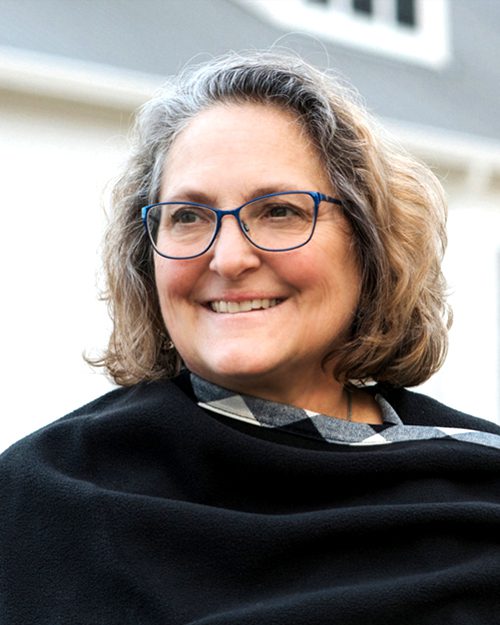
Leigh Bortins
Founder and Chief Visionary Officer of Classical Conversations
Educator, mother, grandmother, and daughter of the King, Leigh Bortins is best known for creating lifelong learners through her educational support program, Classical Conversations, which organizes classical academic communities for homeschooling families. Leigh founded Classical Conversations (or CC) in 1997 to know God and to make Him known through the power of community. CC supports classical, Christian homeschoolers in all fifty states and thirty foreign countries, with well over 45,000 families enrolled in the program. After receiving a bachelor of science in aerospace engineering from the University of Michigan, Leigh went on to write her Doctor of Ministry thesis on church-based global education for Gordon-Conwell Theological Seminary. She has written several books, including The Core: Teaching Your Child the Foundations of Classical Education, The Question: Teaching Your Child the Essentials of Classical Education, and The Conversation: Challenging Your Student with a Classical Education, a series which explores the classical trivium from a parent’s perspective. She has also authored curriculum and guides for parents and students, including The Math Map, a complete math curriculum for classical students of all ages. She enjoys speaking at conferences, to organizations, and on radio shows and podcasts to promote free-market education, and she also enjoys encouraging parents to take ownership of their children’s education. Leigh engages thought leaders, institutions, and families through her enthusiasm to develop both minds and souls. Leigh and her husband, Rob, homeschooled their four sons in North Carolina and now enjoy watching their three grandchildren become lifelong learners alongside their parents.
I want to start homeschooling!
A Classical Conversations team member will contact you shortly to help you learn more about enriching your child’s classical, Christian homeschool education.
- Kindergarten Homeschool Curriculum: 3 Things to Consider (Updated for 2024)
- The Math Map: A Classical Approach to Mathematics Education
July 4th Celebrations and Memory Work
- Thinking about Homeschooling? 10 Tips to Get Started
- Pioneering Classical Christian Education in Colombia
- Classical Christian Education
- Classical Conversations Programs
- Encouragement
- Homeschooling
- Impact Your Community
- International Spotlight
Join the Conversation
Community is at our core, with families doing life together as they learn.
Related Posts - Resources
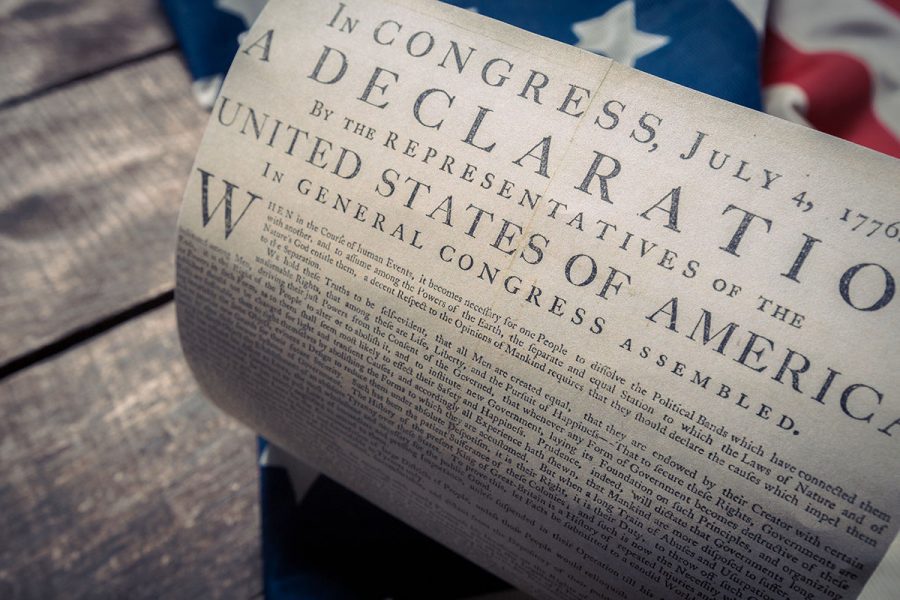
On July 4th, and on other American holidays, do we really pause to reflect on...

E-books vs Physical Books: The Great Debate
E-books vs physical books. Maybe you’ve been in a similar situation. Whether in a thrift...

The Desert Island Game: Leigh Bortins’ Top 5 Books
I have been asked to share the 5 titles I’d bring on a deserted island....
What can we help you find?
- NONFICTION BOOKS
- BEST NONFICTION 2023
- BEST NONFICTION 2024
- Historical Biographies
- The Best Memoirs and Autobiographies
- Philosophical Biographies
- World War 2
- World History
- American History
- British History
- Chinese History
- Russian History
- Ancient History (up to 500)
- Medieval History (500-1400)
- Military History
- Art History
- Travel Books
- Ancient Philosophy
- Contemporary Philosophy
- Ethics & Moral Philosophy
- Great Philosophers
- Social & Political Philosophy
Classical Studies
- New Science Books
- Maths & Statistics
- Popular Science
- Physics Books
- Climate Change Books
- How to Write
- English Grammar & Usage
- Books for Learning Languages
- Linguistics
- Political Ideologies
- Foreign Policy & International Relations
- American Politics
- British Politics
- Religious History Books
- Mental Health
- Neuroscience
- Child Psychology
- Film & Cinema
- Opera & Classical Music
- Behavioural Economics
- Development Economics
- Economic History
- Financial Crisis
- World Economies
- Investing Books
- Artificial Intelligence/AI Books
- Data Science Books
- Sex & Sexuality
- Death & Dying
- Food & Cooking
- Sports, Games & Hobbies
- FICTION BOOKS
- BEST NOVELS 2024
- BEST FICTION 2023
- New Literary Fiction
- World Literature
- Literary Criticism
- Literary Figures
- Classic English Literature
- American Literature
- Comics & Graphic Novels
- Fairy Tales & Mythology
- Historical Fiction
- Crime Novels
- Science Fiction
- Short Stories
- South Africa
- United States
- Arctic & Antarctica
- Afghanistan
- Myanmar (Formerly Burma)
- Netherlands
- Kids Recommend Books for Kids
- High School Teachers Recommendations
- Prizewinning Kids' Books
- Popular Series Books for Kids
- BEST BOOKS FOR KIDS (ALL AGES)
- Ages Baby-2
- Books for Teens and Young Adults
- THE BEST SCIENCE BOOKS FOR KIDS
- BEST KIDS' BOOKS OF 2023
- BEST BOOKS FOR TEENS OF 2023
- Best Audiobooks for Kids
- Environment
- Best Books for Teens of 2023
- Best Kids' Books of 2023
- Political Novels
- New History Books
- New Historical Fiction
- New Biography
- New Memoirs
- New World Literature
- New Economics Books
- New Climate Books
- New Math Books
- New Philosophy Books
- New Psychology Books
- New Physics Books
- THE BEST AUDIOBOOKS
- Actors Read Great Books
- Books Narrated by Their Authors
- Best Audiobook Thrillers
- Best History Audiobooks
- Nobel Literature Prize
- Booker Prize (fiction)
- Baillie Gifford Prize (nonfiction)
- Financial Times (nonfiction)
- Wolfson Prize (history)
- Royal Society (science)
- Pushkin House Prize (Russia)
- Walter Scott Prize (historical fiction)
- Arthur C Clarke Prize (sci fi)
- The Hugos (sci fi & fantasy)
- Audie Awards (audiobooks)
Last updated: June 12, 2024
Greek and Roman literature—what comes under the subject heading ‘classics’ or 'classical studies'—are the foundational texts of Western literature. Everything that comes after them draws upon them. Even if you think you’re not directly interested in the classical world, knowledge of it will likely deepen your appreciation of your own artistic and literary interests. Our interviews recommend books on all aspects of classics and classical studies.
If you're serious about classics, the first step is probably to learn the languages. Academic Paul McMullen recommends the best books on learning Ancient Greek , while journalist and author Harry Mount talks about the best books for learning Latin (including which ones to avoid).
Turning to literature, Emily Wilson, Professor of Classical Studies at the University of Pennsylvania, talks about her translation of the Odyssey and recommends books to read alongside or after the Odyssey . Meanwhile, Charlotte Higgins, a chief culture writer for the Guardian, recommends the greats of classical literature (mainly poetry). Daniel Mendelsohn—author, critic and translator—also focuses on classical poems and plays in his top updates of the classics .
On the subject of classical history, Mary Beard looks at ancient history in modern life , including the role of slavery; historians Tom Holland and Harry Sidebottom give us their best books on Ancient Rome. Oxford classicist Robin Lane Fox selects his best books on religious and social history in the ancient world .
If you're looking for books for to inspire young adults, classics teacher Olly Murphy gives us his best classics books for teenagers . We also have Lucy Coats, author of one of the best Greek myth books for young children, recommending her favourites. Also unmissable for learning about Greek myths are Stephen Fry's Mythos and Heroes , both especially fun to listen to as audiobooks.
The Best Classics Books for Teenagers , recommended by Olly Murphy
The silence of the girls: a novel by pat barker, spqr: a history of ancient rome by mary beard, dynasty by tom holland, imperium: a novel of ancient rome by robert harris, the hemlock cup by bettany hughes.
Caesar, Cicero, Achilles, Socrates, Plato: millennia later, we still talk about them. Olly Murphy , classics teacher at Wycombe Abbey, one of England's top girls' schools, recommends books and explains why classics remains one of the most exciting subjects for teenagers to study.
Caesar, Cicero, Achilles, Socrates, Plato: millennia later, we still talk about them. Olly Murphy, classics teacher at Wycombe Abbey, one of England’s top girls’ schools, recommends books and explains why classics remains one of the most exciting subjects for teenagers to study.
The best books on Ancient Rome , recommended by Tom Holland
The twelve caesars by suetonius and robert graves (translator), the decline and fall of the roman empire by edward gibbon, the roman revolution by ronald syme, the roman triumph by mary beard, pagans and christians by robin lane fox.
How accurate is what we think we know about the Romans? Tom Holland , the author of Rubicon, tells us about the exercise of power, the staging of ceremony and the influence of religion in ancient Rome.
How accurate is what we think we know about the Romans? Tom Holland, the author of Rubicon, tells us about the exercise of power, the staging of ceremony and the influence of religion in ancient Rome.
The Best Classics Books for Children , recommended by Annelise Gray
D'aulaires' book of greek myths by ingri d'aulaire and edgar parin d'aulaire, the odyssey by gillian cross & neil packer (illustrator), the eagle of the ninth by rosemary sutcliff, the story of antigone by ali smith & laura paoletti (illustrator), empire's end: a roman story by leila rasheed.
Ancient Greece and the Roman Empire continue to fascinate children and provide fertile ground for historical novels that resonate with today’s readers. Author and classicist Annelise Gray talks us through some of her favourite books for children set in the ancient Mediterranean world and Roman Britain.
The Best Trojan War Books , recommended by Stephen Fry
The iliad by homer, the odyssey by homer and translated by emily wilson, the aeneid (robert fitzgerald translation) by virgil, posthomerica by arthur sanders way (translator) & quintus smyrnaeus, the tale of troy by roger lancelyn green.
The tale of the Trojan War—its causes, its heroes, the wooden horse, the gods and goddesses who dramatically change the course of events—has fascinated us down the ages and is embedded in our collective imagination. But where do the stories come from? British author and actor Stephen Fry lists some of the books that were most useful for Troy , his retelling of the Trojan War.
The best books on Virgil , recommended by Sarah Ruden
The eclogues and the georgics by virgil, the death of virgil by hermann broch.
Virgil is one of the most influential poets in the history of Western literature. Here, another poet, Sarah Ruden , talks about the challenges of translating the Aeneid and why, although we know little about Virgil as a man, his great poem’s take on the violence and power struggles it depicts is deeply ambivalent.
Virgil is one of the most influential poets in the history of Western literature. Here, another poet, Sarah Ruden, talks about the challenges of translating the Aeneid and why, although we know little about Virgil as a man, his great poem’s take on the violence and power struggles it depicts is deeply ambivalent.
The best books on Sparta , recommended by Andrew Bayliss
Histories by herodotus, spartan reflections by paul cartledge, spartan women by sarah pomeroy, gates of fire: an epic novel of the battle of thermopylae by steven pressfield, property and wealth in classical sparta by stephen hodkinson.
Their reputation for self-discipline and self-denial made their way into the English language, but what the ancient Spartans were really like remains a source of debate among scholars, not least because they wrote little themselves. Andrew Bayliss , Senior Lecturer in Greek History at the University of Birmingham and author of an excellent, short book on The Spartans , talks us through what we know about the heroes of Thermopylae, including the darker sides of their culture and society.
Their reputation for self-discipline and self-denial made their way into the English language, but what the ancient Spartans were really like remains a source of debate among scholars, not least because they wrote little themselves. Andrew Bayliss, Senior Lecturer in Greek History at the University of Birmingham and author of an excellent, short book on The Spartans , talks us through what we know about the heroes of Thermopylae, including the darker sides of their culture and society.
The best books on Augustus , recommended by Peter Wiseman
Catiline’s war, the jugurthine war, histories sallust (trans. aj woodman), res gestae divi augusti: text, translation, and commentary by alison cooley (editor) & augustus, rome's cultural revolution by andrew wallace-hadrill, the neighborhoods of augustan rome by j. bert lott, augustan culture by karl galinsky.
Is it possible that Augustus was not the first Roman emperor, but the last of Rome's great populist champions? That's what classicist Peter Wiseman argues in his book, The House of Augustus: A Historical Detective Story. Drawing on a lifetime of research and writing on this period, the emeritus professor of classics and ancient history gives a brilliant overview of the Augustan age, and recommends what to read to better understand the adopted son of Julius Caesar, who found Rome in brick and left it in marble.
Is it possible that Augustus was not the first Roman emperor, but the last of Rome’s great populist champions? That’s what classicist Peter Wiseman argues in his book, The House of Augustus: A Historical Detective Story. Drawing on a lifetime of research and writing on this period, the emeritus professor of classics and ancient history gives a brilliant overview of the Augustan age, and recommends what to read to better understand the adopted son of Julius Caesar, who found Rome in brick and left it in marble.
The best books on Leadership: Lessons from the Ancients , recommended by Jeffrey Beneker
The rise and fall of athens: nine greek lives by ian scott-kilvert & plutarch, the greek alexander romance by richard stoneman, atticus by cornelius nepos & nicholas horsfall, agricola by harold mattingly, james rives & tacitus, lives of the eminent philosophers diogenes laertius (ed. james miller, trans. pamela mensch).
Whatever modern leadership books may say about what's required to be a good leader, for the ancients there was only one vital requirement: studying philosophy. Jeffrey Beneker , Professor of Classics at the University of Wisconsin-Madison, talks us through what ancient biographies reveal about how to be a leader.
Whatever modern leadership books may say about what’s required to be a good leader, for the ancients there was only one vital requirement: studying philosophy. Jeffrey Beneker, Professor of Classics at the University of Wisconsin-Madison, talks us through what ancient biographies reveal about how to be a leader.
The best books on Ancient History in Modern Life , recommended by Mary Beard
The greeks and the irrational by e r dodds, the annals by tacitus, the last days of pompeii by e bulwer lytton, ancient slavery and modern ideology by moses finley, purity and danger by mary douglas.
Mary Beard , Professor of Classics at the University of Cambridge, talks us through the books that have had the deepest impact on her thinking about the ancient world and explains why studying Classics is absolutely relevant to modern life.
Mary Beard, Professor of Classics at the University of Cambridge, talks us through the books that have had the deepest impact on her thinking about the ancient world and explains why studying Classics is absolutely relevant to modern life.
The best books on The Odyssey , recommended by Emily Wilson
The greek plays by aeschylus, euripides & sophocles, collected ancient greek novels by b. p. reardon (translator), paradise lost by john milton, the penelopiad by margaret atwood.
The Odyssey has been constantly rewritten by centuries of writers, but like so much of Greek myth, it's always already open to revising its own narrative. Emily Wilson , Professor of Classics at the University of Pennsylvania and the first woman to translate the Odyssey into English, recommends the best books to read after (or alongside) the Ancient Greek epic, and offers sage wisdom about both translating ancient epics and why everyone can learn from the Odyssey today.
The Odyssey has been constantly rewritten by centuries of writers, but like so much of Greek myth, it's always already open to revising its own narrative. Emily Wilson, Professor of Classics at the University of Pennsylvania and the first woman to translate the Odyssey into English, recommends the best books to read after (or alongside) the Ancient Greek epic, and offers sage wisdom about both translating ancient epics and why everyone can learn from the Odyssey today.
We ask experts to recommend the five best books in their subject and explain their selection in an interview.
This site has an archive of more than one thousand seven hundred interviews, or eight thousand book recommendations. We publish at least two new interviews per week.
Five Books participates in the Amazon Associate program and earns money from qualifying purchases.
© Five Books 2024

10 Books On Classical Education, Pt. 1
Some thoughts after 15 years in the classroom.

Every Classical Christian School has a reading list. It might be public; it might be private. But it exists. Its purpose might be nebulous, but it is most likely used to help develop teachers for certification and sometimes offered to parents who want to know more. There are some pretty standard books in this category, but there are some which are less common and unique to the context of that particular school. Below is a list that I put together with this question in mind: “what books should every teacher and administrator and board member read within the first three years on the job at a Classical Christian school?” And I’ll add that I think parents who want to understand the why of Classical Christian Education would do well to read them as well.
Thanks for reading A Southern Knickerbocker! Subscribe for free to receive new posts and support my work.
This first part of the list is composed of books from the 20th and 21st centuries, serving primarily as thoughts on pedagogy and education trends. There are books on this list that some teachers have said, “I read that, and it did nothing for me.” To this I would reply, “then, like your students who got nothing out of your lesson last week, it is worth trying again.” I don’t say that as a harsh criticism, but as a recognition that we are often our own barrier when trying to learn from the written word. And good teachers, parents, etc., would not encourage their students to give up. So, it is recommended to take one’s own advice.
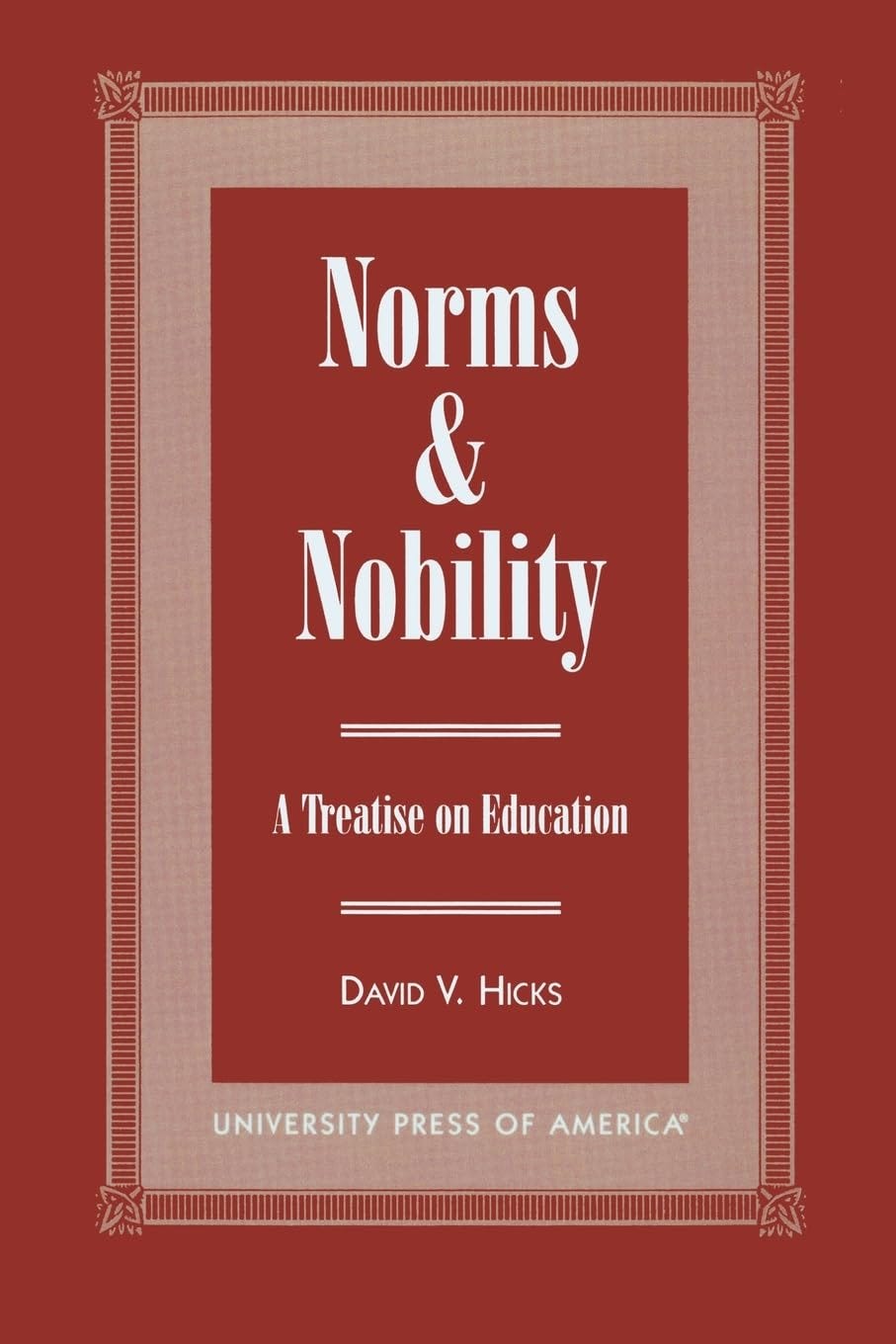
Norms & Nobility , David Hicks
This one doesn’t need much of a defense. It’s one of those standard books that adorns public bookshelves in every Classical Christian School in the U. S., though I have discovered many give up after starting it because it is a challenging read. To that I say, Push Onward! This is a book that pays dividends over the years. Hicks is a master at articulating both the roots and the desired fruit of a properly Classical education. Norms and Nobility serves as a history lesson and a philosophical exercise at the same time.

The Abolition of Man , C. S. Lewis
Lewis is known for his fiction works, and this book often ranks as one of his most challenging. When I first read it, at the age of twenty, I had no clue what he was talking about. But it is a book that I have read over twelve times now, and each reading teaches me anew. Lewis critiqued both education and culture in England during the middle of the 20th century, but his diagnoses and solutions are more salient today than when it was written. Michael Ward’s After Humanity is a helpful companion for those who feel like a guide might help. But I suggest only reading Ward’s book after reading Lewis’s.
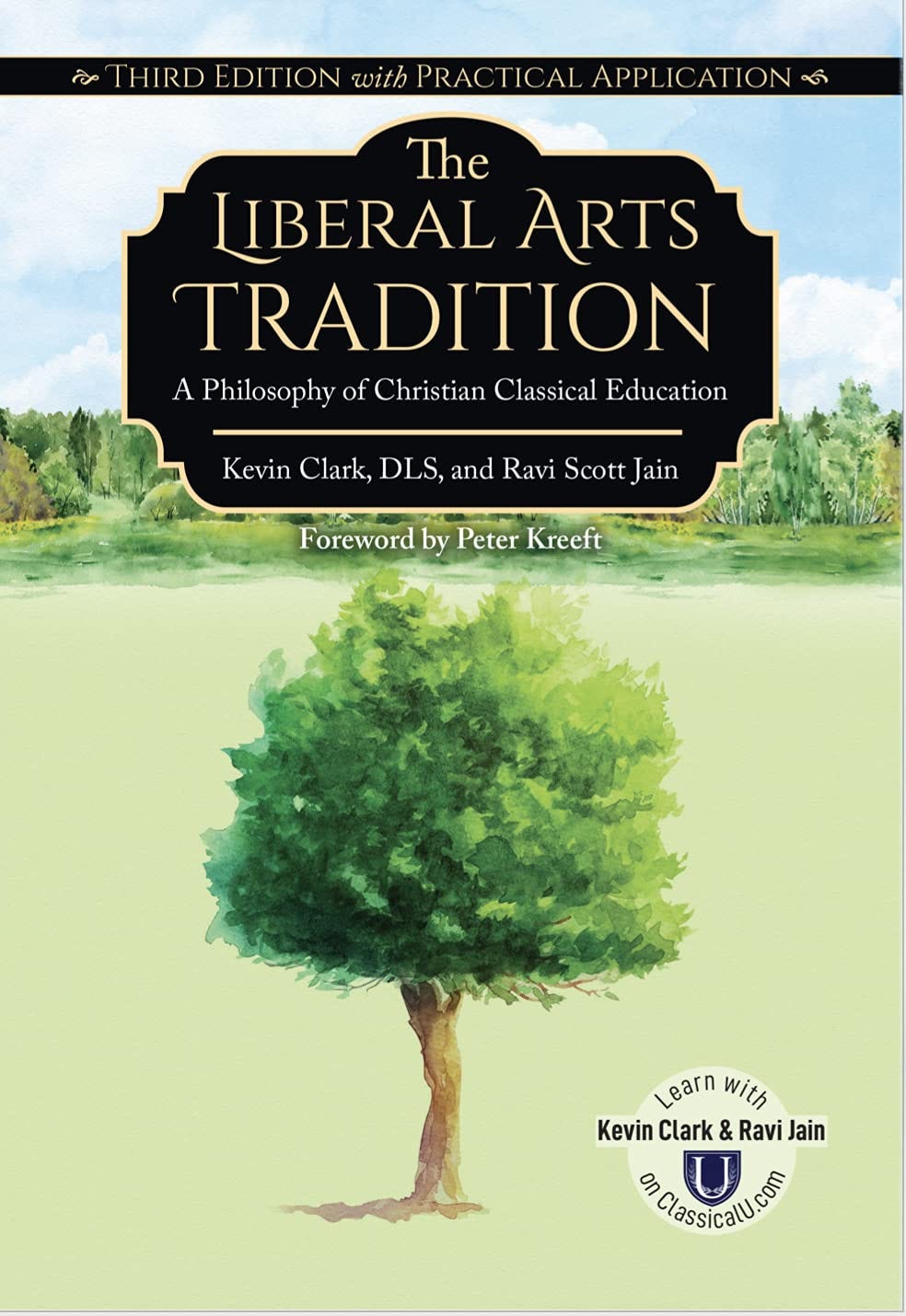
The Liberal Arts Tradition (3rd Edition), Kevin Clark & Ravi Jain
This is the narrowest book, topically speaking, on the list. It is written for Classical Christian Educators and aims to provide a strong philosophical basis for the purpose of the CCE movement. Despite this, I think the book should be more widely read, and that parents especially would benefit from it. Clark and Jain are practitioners and that gives their advice a very tangible applicability. They cover the history of Classical Education in a short space and lay the groundwork for the next few decades of the continued renewal of Classical Education.
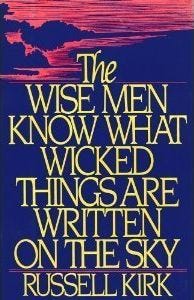
The Wise Men Know What Wicked Things Are Written In The Sky , Russell Kirk
This is the least known of the books on the list, which is a real shame. Don’t let the title fool you; this is a marvelous book that is both easy to understand and a pleasure to read. It contains some of the most potent criticisms of American culture that Kirk offered, especially about education. And its relevance has only increased. Kirk quipped in this little tome that, “It is not inevitable that the computer should supplant the poet” long before A.I. became an issue. Reading Kirk is akin to encountering a modern Jeremiah, and it is always an education in and of itself.
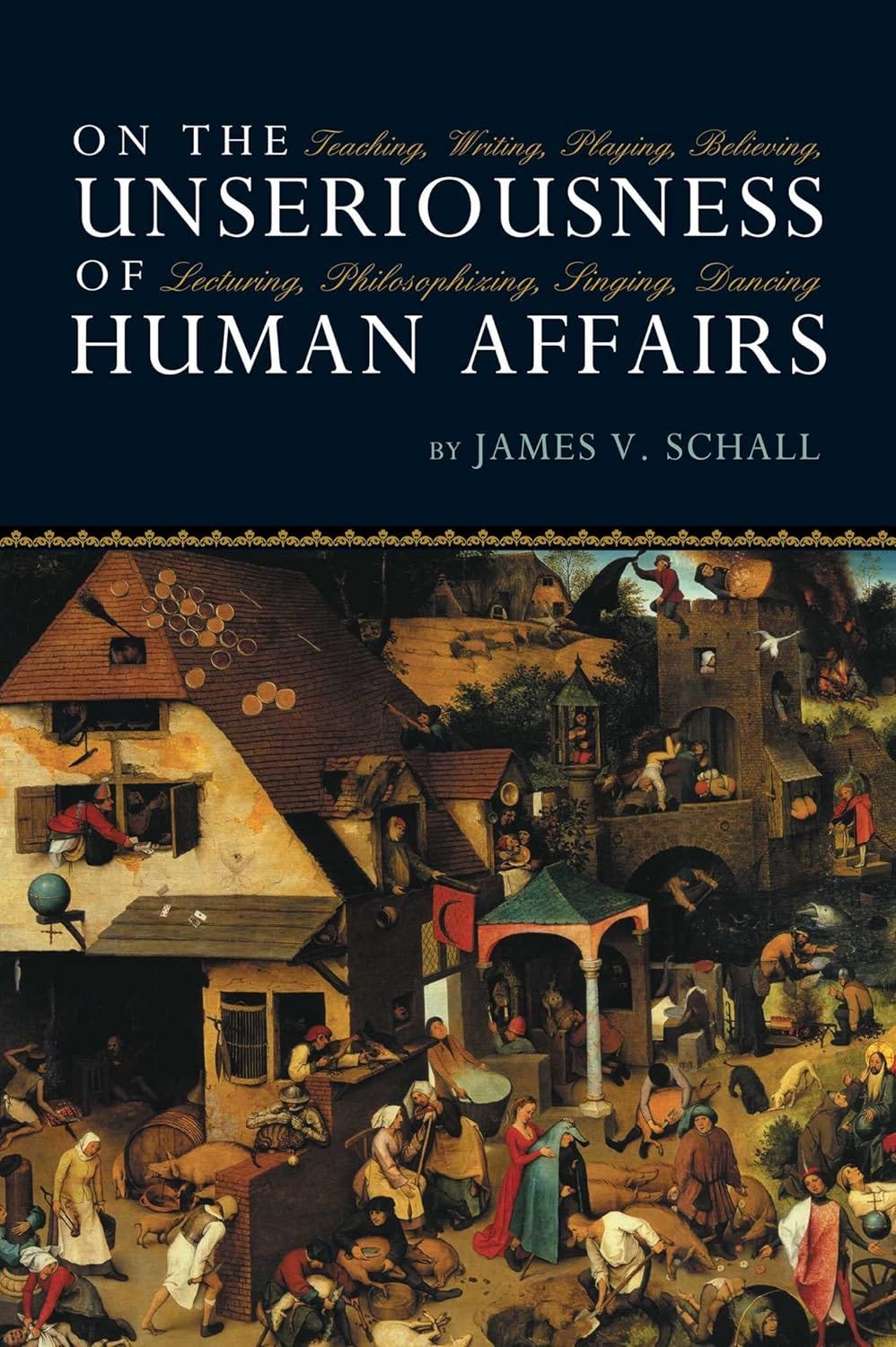
On the Unseriousness of Human Affairs , James V. Schall
Anyone who has trafficked in Liberal Arts groups for even a brief time has heard of Father Schall. Readers may be more familiar with Schall’s introduction Joseph Pieper’s book Leisure: The Basis of Culture , or his The Life of the Mind which was the first Schall book I encountered. 1 But I think On the Unseriousness of Human Affairs hits on so many important points related to life and godliness, that this is the one which more people should read. Schall clearly understands why human society is in a hurry to get nowhere, and his solutions, rooted in the Classical Christian past, retain a currency regardless of cultures and customs. Being human requires a willingness to be unserious and this is most palpable in the way he structures this unique little book.
The next part of the list will look a little but further back in time and offer some thoughts on why pagan works must be included in such a list. So come back next week!
Thank you for reading A Southern Knickerbocker. This post is public so feel free to share it.
Thanks to my friends who pointed out my incorrect attribution in an earlier edition of this post.
| Liked by Sean C. Hadley
|
Ready for more?
What are the Great Books? Classical Education Books to Enrich Study
- January 7, 2023
- Booklists , Classical Homeschooling , Homeschooling FAQS , Improving homeschool
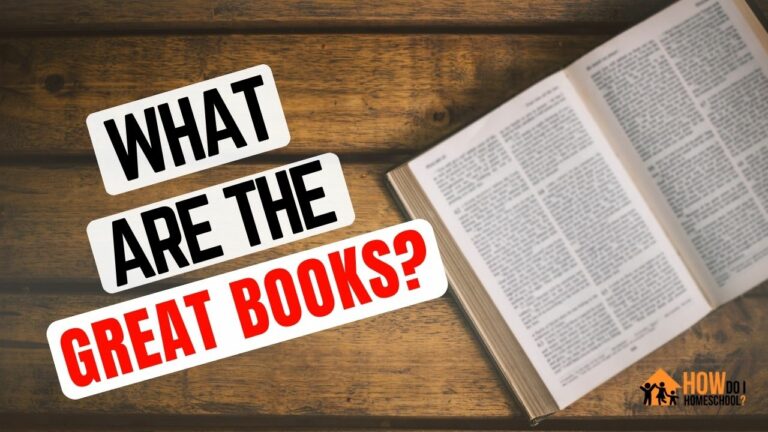
Classical education has deep roots in Western culture and literature, and reading is an integral part of this tradition. Finding the right books for your curriculum can be daunting as there are so many to choose from. In this article, we will explore some of the best books for those who want to engage with the classics, either for academic purposes or simply for personal enrichment.
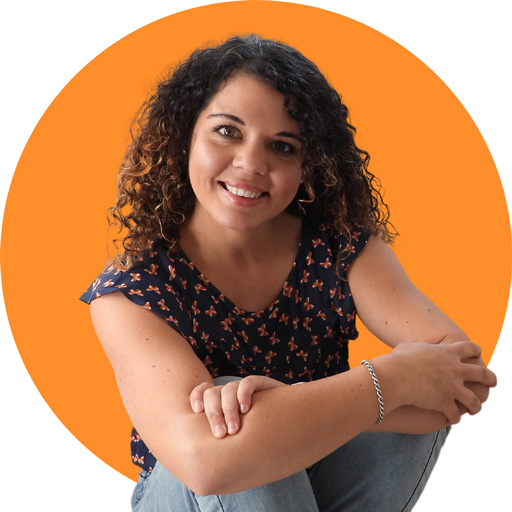
I hope you enjoy reading this blog post. If you want to do my course on how to homeschool, click here .
We’ll also have a close look at what living books are and how they’re different from the great books in classical education.
Let’s take a closer look below.
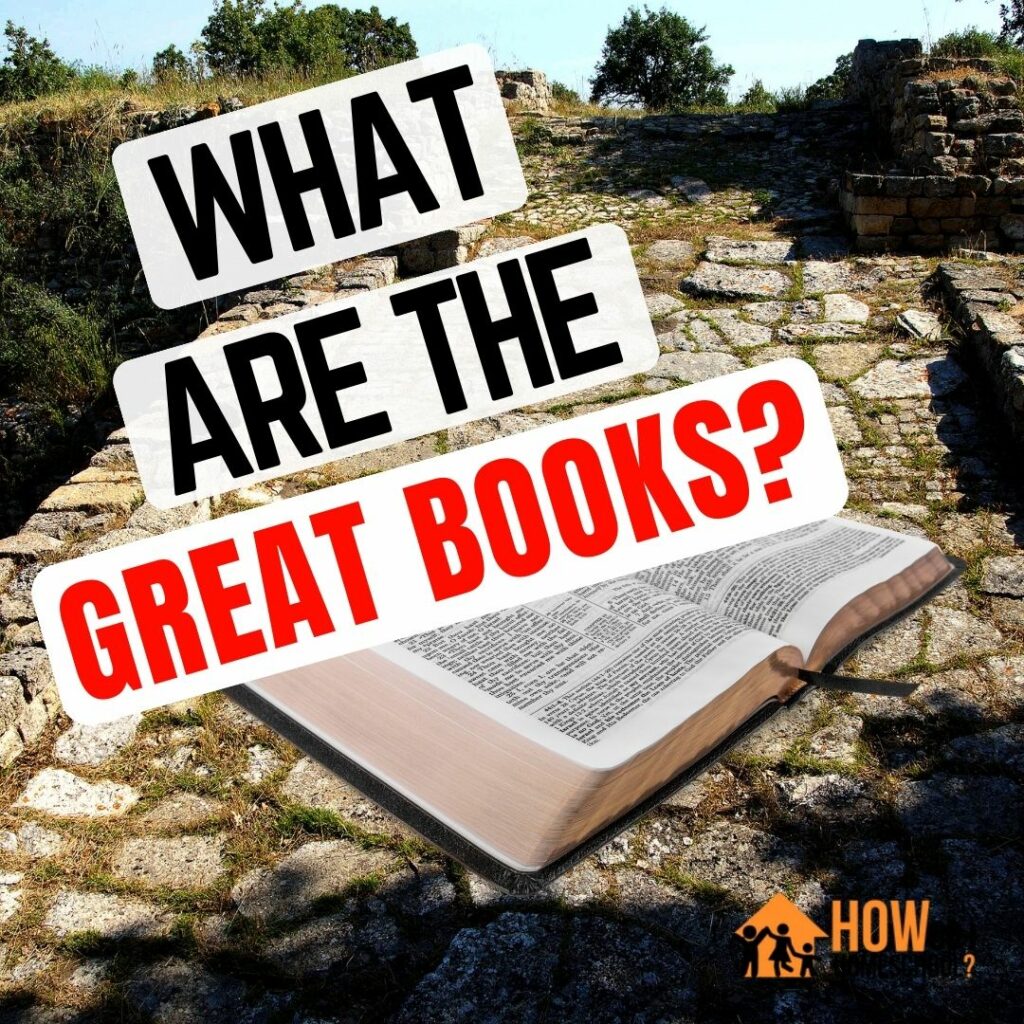
Affiliate links included.
What are Great Books?
Classical education has been around for centuries, and some of the books associated with it are timeless. Whether you’re looking to learn more about the great minds from history or find a path toward self-improvement, these great books in classical education are sure to inspire.
From Plato’s Republic to Aristotle’s Nicomachean Ethics, many of these titles have become staples in educational systems worldwide. They explore topics such as philosophy, mathematics, ethics, and politics – topics that remain relevant today. For those interested in literature, Homer’s Odyssey and other works by Virgil, Shakespeare, and Dante provide insight into storytelling techniques still used today.
Those looking for tales of adventure can turn to works like Robinson Crusoe or Moby Dick, which provide gripping stories that also offer lessons on perseverance and survival.
Short List of Great Books
For readers looking for a short list of great books essential to understanding classical education, there are a few classics worth attention to: The Bible, the Illiad, The Odyssey, and The Republic.
Let’s discuss them below briefly and look at a few other favorites.
The Bible is hands down the most famous and popular book of all time. This timeless work which claims to be inspired by God himself, offers guidance, hope, strength, and encouragement from God’s word. It speaks to all ages with powerful lessons about faith, life, and love that are relevant today as ever.
Homer’s epic poem, the Illiad, tells the story of the ten-year siege of Troy by Greek forces, focusing on the mighty warriors Achilles and Hector. Written around 700 BCE, it is one of the oldest surviving works in Western literature.
The Odyssey
The Odyssey is another ancient epic poem written by Homer sometime during 7th or 8th century BCE. This work follows Odysseus’ ten-year journey home after fighting in the Trojan War as he encounters all sorts of dangers, from mythical creatures like Cyclopes and Sirens to vengeful gods such as Poseidon. It has been praised for its themes of loyalty, love, and friendship, among many others.

The Republic
Written in 360 BCE, it is a Socratic dialogue exploring justice and its role in society. It introduces the famous allegory of the cave, which has been cited and interpreted by thinkers over centuries since its publication. In addition, it also elaborates on his theory of ideal forms, where he addresses concepts such as knowledge, truth, and beauty.
Nicomachean Ethics
Another classic work is Aristotle’s Nicomachean Ethics which was written around 350 BCE. This ethical treatise by Aristotle explores moral philosophy by examining virtue and happiness as well as other topics such as political leadership and friendship.
Shakespeare’s Works
One of the most influential works among the great books is William Shakespeare’s plays and sonnets. His works are essential to understanding the English language as well as providing an insight into our society and culture.
Here is a short list of great books in classical education that incorporate Shakespeare’s works (from The Norton Anthology of English Literature by Stephen Greenblatt et al.):
- Julius Caesar,
- Romeo and Juliet,
- Macbeth and
The significant worth of these plays and sonnets is one of the reasons so many students study Shakespeare’s works in their classical high school education today. (BTW if you don’t know much about classical education , check out the video below, which will convince you why this is a great way to educate children.
Want a Large Great Books Booklist?
So, where can you get a comprehensive list of all the great books for all grades? Check out this complete homeschool booklist for Grades PreK-12th Grade , which is primarily made up of classical books.
You’ll find all your favorite (and the hardest to read) great books there.
Living Books vs Great Books
Living Books vs Great Books is a debate in the homeschool world right now.
What is the difference between these two types of books?
Living books are written engagingly and conversationally, with the author often discussing their personal experiences and opinions. They focus on presenting ideas rather than facts, allowing readers to form their own conclusions and opinions.
In contrast, great books are considered classics within literature.
These books include works by renowned authors such as Shakespeare, Homer, Dickens, Tolstoy, and Austen.
Great books offer an accurate historical representation of events from the period they were written in, providing insight into the history or culture that was present at this time.
They often require more effort from the reader by challenging them with dense topics or philosophical questions which can be difficult to answer or understand without prior background knowledge of the subject matter.
But, there are some similarities between living books and great books in that many books on a living books booklist come from the classic great books.
This is perhaps mainly because Charlotte Mason (the founder of the term ‘living books’ was herself a classical educator. Mason realized the value of some classical books but felt others were tedious and could put children off learning more than they would encourage children into the world of learning.
Classical Education vs Charlotte Mason Education
While homeschooling has become an increasingly popular option for families seeking a unique educational experience for their children, the decision to homeschool can be overwhelming, with so many different homeschool approaches to choose from.
One major choice is between classical education and Charlotte Mason education, two distinct approaches that vary widely in philosophy and execution.
Classical education is centered around the traditional “ grammar , logic , rhetoric ” approach to learning and reading classic literature. It emphasizes memorizing facts and acquiring knowledge of language arts and mathematics through repetition and drills.
Charlotte Mason education focuses instead on developing creativity, imagination, observation skills, and critical thinking abilities in students by introducing them to nature studies, foreign languages, fine art appreciation, and more within a framework rooted in Christian values.
When you study with a Classical education curriculum , like Memoria Press , you’ll almost always be getting a rigorous curriculum that requires a lot of hard work (for example, students will probably do a Latin curriculum and do lots of memorizing).
But, when you study with a Charlotte Mason curriculum , things are much easier as there is much less memorization. Children don’t have to do heavy memorization work, and learning is from fun and enjoyable storybooks.
After spending a while looking at the two curriculum types, I’m convinced they both have their pros and cons. The one you choose should depend more on your family than ‘which of the methods/curricula type is best.’
Want to Learn How to Homeschool?
There are two great ways t learn more about homeschooling: one is free, and one is a $67 fundamentals course.
The $67 Course
Looking to take your homeschooling to the next level? Join Rebecca Devitt’s online Homeschool Parenting Program and learn the strategies and techniques needed to make homeschooling a success ! Learn more about the HPP here and signup here .
The FREE Youtube Channel
Also, make sure you join the How to Homeschool Youtube channel , which will give you a fun and exciting look into the homeschool world and help homeschool your children. Check out the channel here, and don’t forget to SUBSCRIBE.
If you’re not sure where to start, start with the following playlists:
- Starting homeschool playlist
- Homeschool Methods playlist
- Homeschool Curriculum playlist
- FAQs on Homeschooling playlist
You’ll love it and find it helpful and entertaining! Discover the channel here .
Conclusion on Great Books in Classical Education
In conclusion, classical education is an excellent method to explore knowledge and the great books of history. It provides a rich foundation for students to learn to think analytically, reason rigorously, communicate effectively and lead confidently. The great books of classical education provide diverse perspectives on human experience and offer timeless wisdom that can be applied to modern life. Through reading the classics, one can gain insight into the ideas, values, and beliefs of different cultures throughout history.
Rebecca Devitt
Most adults don't particularly want to relive their schooling experience on a daily basis. They would gladly move on to a new life devoid of homework and teachers. Very, very few adults will passionately blog about their schooling some 15 years after graduating. This makes Rebecca Devitt somewhat unique. As it happens, she was homeschooled. And she loved it. Still does. And she wishes every kid could get a taste of homeschooling at its very best. Her website How Do I Homeschool , is a springboard for parents to see what a life of homeschooling could be for both them & their children. When she's not blogging Rebecca is still homeschooling her-adult-self by learning Latin, growing weird vegetables and most importantly looking after her two children Luke & Penny. She has a husband Tristan and is a participant at Wollongong Baptist Church. She's also written a book about why parents should homeschool called 'Why on Earth Homeschool' .
Related Posts
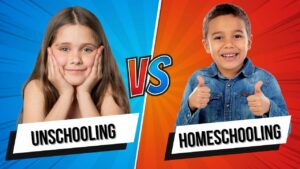
What is Unschooling? (Unschooling vs Homeschooling Methods)
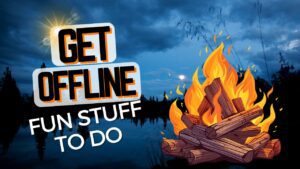
10 Screenless Homeschool Activities for Middle Schoolers that Rock!
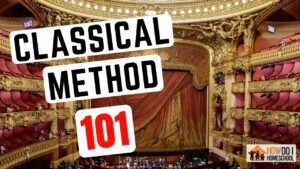
Classical Homeschool Method: An IN-DEPT Introduction
Leave a reply cancel reply.
Your email address will not be published. Required fields are marked *
Name *
Email *
Add Comment
I accept the Privacy Policy
Post Comment

ThinkingWest
Reviving the Great Conversation in the Digital Age
The 12 Book Classical Education

A true classical education is a lifelong pursuit of wisdom and understanding with no demonstrable end. The end of the classical education is played out in real time, in parallel to its pursuit in everyday life. When confronting a claim, one might turn to principles put forth by Aristotle or Bacon to find their veracity; when trying to make sense of political turmoil, one might turn to examples from history in Plutarch or Herodotus; or when trying to express the human experience through artful language, one may look to Shakespeare for inspiration.
Unfortunately, time is short. Between work, family, friends, chores, and more, there is little time for reading, especially mentally taxing reading. Hence, while a cheesy “12 Book” education is antithetical to the spirit of a classical education, practical solutions are required for practical problems.
The works presented below were not uniformly selected upon criteria of impact nor the author’s significance alone. Certainly, Thomas Aquinas would make such a list by merit. The list aims to balance significance, breadth of subject matter, diversity of writing periods, and clarity, all to the best possible degree in just 12 books. Some works were cut simply because they were too dense for a list more geared to those new to the Great Books. Others were left out simply because the author is already represented. Some works are far too long (Aquinas’ Summa Theologica ), which would likely slow most reader’s motivation to continue on in the list.
1. Plato’s Republic
Few classic books lists would dare omit Plato, and this list is no exception. Plato holds a special place in classical reading, as his works immortalized Socrates as the “Father of Philosophy” and simultaneously taught philosophy in a way many today still find easy to comprehend. Republic explores the concept of justice and its infusion into man and the city-state through a dialogue between Socrates and others. Is it any wonder then that Martin Luther King, Jr. claimed Republic (alongside the Bible) was the one book he would choose to take to a deserted island? Though Plato was certain to be represented on this list, choosing which of his works to include was difficult, as his Republic and Apology are close in repute as his most outstanding works. Nonetheless, Republic is significantly longer than and covers more philosophical ground than Apology . The latter is so short, however, why not just read them both? Problem solved.
“I am the wisest man alive, for I know one thing, and that is that I know nothing.” Plato, Republic

2. Aristotle’s Ethics
To not include Aristotle’s Ethics would be a capital sin. In this work, Aristotle wrestles with what the highest aim of man is and how that aim affects how we live. Aristotle is in perhaps the most important teacher of the ancient Greek world, as he was arguably the greatest mind of the time, a worthy successor to Plato’s teaching, a prolific author, and the educator of Alexander the Great. More than any other individual, Aristotle is the cornerstone of western philosophy, as Bertrand Russell suggested, saying “…almost every serious intellectual advance has had to begin with an attack on some Aristotelian doctrine…”.
“One swallow does not make a summer, neither does one fine day; similarly one day or brief time of happiness does not make a person entirely happy.” Aristotle, Ethics

3. Herodotus’ The Histories
With a mix of fact and fiction in proportions hard to quantify, Herodotus’ work bridges ancient and modern historical scholarship by hailing the transition from emphasis on style and intrigue to bare historical fact. Living in the 4th century BC, Herodotus recounted from contemporary and pre-existing sources the lives of kings and the details of the region’s most famous battles, including those at Marathon, Thermopylae, and Salamis. His work continues to influence history and media in new ways today, for example, as common source material for Dan Carlin’s Hardcore History podcast. Professor Barry S. Strauss wrote of Herodotus: “But he is more than a historian. He is a philosopher with three great themes: the struggle between East and West, the power of liberty, and the rise and fall of empires… He goes from the cosmos to the atom, ranging between fate and the gods, on the one hand, and the ability of the individual to make a difference, on the other. And then there is the sheer narrative power of his writing…The old master keeps calling us back.”
“But this I know: if all mankind were to take their troubles to market with the idea of exchanging them, anyone seeing what his neighbor’s troubles were like would be glad to go home with his own.” Herodotus, The Histories

4. Plutarch’s Lives
As my favorite work on this list, Plutarch’s Lives of the Noble Grecians and Romans (sometimes just called Lives for short) was sure to make the cut. Plutarch introduces the reader to history in a very different way. Rather than running through events in linear textbook fashion, he emphasized a method to teaching history I have only recently come to appreciate. Plutarch wrote, “The world of man is best captured through the lives of the men who created history.” History is a story of people not stale events with dates tacked on top them.
Plutarch’s Lives covers many of the greatest figures in ancient Rome and Greece in wonderful detail and color. While not all the facts of this nearly 2000 year old history might stand up to modern scrutiny, Plutarch provides unprecedented insight into the character, cultures, and deeds of 48 men that shaped his world (and ours subsequently). The work is also written in an interesting style, with pairs of such figures compared and contrasted to highlight moral lessons to be learned.
“For kings indeed we have, who wear the marks and assume the titles of royalty, but as for the qualities of their minds, they have nothing by which they are to be distinguished from their subjects.” Plutarch, Lives of the Noble Grecians and Romans

5. St. Augustine’s Confessions
Perhaps the first autobiography, Augustine’s Confessions remains a staple of both classical and Christian reading lists. Confessions is an interesting work, because it simultaneously gives a personal testimony of Augustine’s conversion to the Christian faith while also illuminating theology that has influenced Christian thought ever since.
“And men go abroad to admire the heights of mountains, the mighty waves of the sea, the broad tides of rivers, the compass of the ocean, and the circuits of the stars, yet pass over the mystery of themselves without a thought.” St. Augustine, Confessions

6. Machiavelli’s The Prince
Many may find the addition of Niccolo Machiavelli’s The Prince as disagreeable. However, I chose this work for two main reasons: 1) It is very short and hence offsets the absurdly long Crime and Punishment (last on this list); 2) The Prince is considered the first work of modern political philosophy and thus finds itself exceptionally relevant to our hyper-political culture today. Machiavelli offers firsthand insight into the psyche of politicians in the 16th century and today. In fact, the work was not a published book by design at all, but rather a letter from a sidelined Machiavelli to the new powers in Italy in order to both offer help, but more expediently to gain back some political clout with the new administration.
“Everyone sees what you appear to be, few experience what you really are.” Niccolo Machiavelli, The Prince

7. Cervantes’ Don Quixote
Considered by many as the first “modern” novel, Don Quixote explores the ideas of heroism, imagination, delusion, and chivalry in comedic (though quite long-winded) fashion. Cervantes may be one of the best prose writers to ever put pen to paper, and even through translations from the original Spanish, his mastery over language is evident. Don Quixote has influenced society ever since its writing over 400 years ago and continues to influence our modern world, including modern films like Monty Python and the Holy Grail . Further, the English word quixotic , meaning “foolishly impractical especially in the pursuit of ideals”, was inspired by Cervantes’ protagonist and is a testament to the lasting significance of the work.
“When life itself seems lunatic, who knows where madness lies? Perhaps to be too practical is madness. To surrender dreams — this may be madness. Too much sanity may be madness — and maddest of all: to see life as it is, and not as it should be!” Cervantes, Don Quixote

8. Shakespeare’s Hamlet
Go ahead and search the internet for “most famous plays” and Shakespeare’s Hamlet is sure to be at the top of the list or very near to it. No playwright has influenced society so deeply as Shakespeare, not only by his storytelling and artistry, but also by his direct influence on the English language. Shakespeare popularized hundreds of words in common English usage today, including “bedroom”, “gossip”, and “eyeball”. While he probably didn’t invent all these words, his usage of such words represents the earliest recorded instances. Hamlet is a story that continues to be retold today in various forms, like the children’s movie The Lion King .
“There are more things in Heaven and Earth, Horatio, than are dreamt of in your philosophy.” Shakespeare, Hamlet
9. Montaigne’s Essays
The famous Essays by Michel Eyquem de Montaigne is somewhat of a strange work as it doesn’t focus on any one topic other than whatever Lord Montaigne seemed to want to write about. Nonetheless, there is tremendous breadth, clarity of thought, and development of ideas on each and every subject Montaigne put to pen. The work has influenced countless thinkers and writers since the 16th century. In fact, one of the minds behind the Great Books of the Western World set, Mortimer Adler, claimed that Montaigne’s Essays would be one of his top choices of books if he were stranded on a deserted island.
“On the highest throne in the world, we still sit only on our own bottom.” Michel Eyquem de Montaigne, Essays

10. Hume’s An Enquiry Concerning Human Understanding
David Hume was a foremost 18th century Scottish Enlightenment philosopher, building on ideas of empiricism and skepticism first introduced by Francis Bacon over a hundred years prior. Hume’s An Enquiry Concerning Human Understanding develops these empirical and skeptical strains to a new heights, that although written of hundreds of years ago, still find wide acceptance today. While many may view the “progress” of the Enlightenment Era’s ideas controversial, these ideas still live in the minds of many today, and Hume’s work is largely responsible for that. The influential Immanuel Kant identified Hume’s work as the book that woke him from his “dogmatic slumber”. Though perhaps the most difficult read on the list, it is widely regarded as a classic of modern philosophical literature.
“In our reasonings concerning matter of fact, there are all imaginable degrees of assurance, from the highest certainty to the lowest species of moral evidence. A wise man, therefore, proportions his belief to the evidence.” David Hume, An Enquiry Concerning Human Understanding

11. The Constitution of the United States
The Constitution of the United States rightfully makes this tight list because it is both a fantastic distillation of the “liberty philosophies” of previous thinkers and the most important historical document of the past 300 years. The U.S. Constitution is undoubtedly a political work, and by far one that has shaped our modern world more than any other since its writing. Further, it is a great addition to this list for its brevity to offset some of the longer works on this list.
“We the People of the United States, in Order to form a more perfect Union, establish Justice, insure domestic Tranquility, provide for the common defense, promote the general Welfare, and secure the Blessings of Liberty to ourselves and our Posterity, do ordain and establish this Constitution for the United States of America.” Constitution of the United States of America

12. Dostoevsky’s Crime and Punishment
In the fiction world, few books could be as deserving as Crime and Punishment (1866) to make the list. While its 200,000 word count may be daunting to many readers, the payoff has been emphasized by its lasting popularity and acclaim from many of the greatest minds since its writing. Likely Dostoevsky’s most popular work, few books compete with Crime and Punishment in capturing such complex characters and their material and psychological struggles. Merits aside, Dostoevsky’s classic novel also represents the only (culturally) eastern European work on the list, in contrast to a majority of western European (and one American) works.
“Pain and suffering are always inevitable for a large intelligence and a deep heart. The really great men must, I think, have great sadness on earth.” Fyodor Dostoevsky, Crime and Punishment

Conclusions
There are 12 great choices for a broad sampling of the Great Books. Undoubtedly, many will wish for a particular substitution here or there. What are your suggestions? What would your list look like? Leave a comment below. For more info on the “Great Books”, check out more from ThinkingWest:
Classic Book Lists
Share this:
Published by christian poole.
Catholic | Father | Husband | Founder of ThinkingWest .com View more posts
6 thoughts on “ The 12 Book Classical Education ”
A good list, but no Dante?
Hmm. Dante is a great choice. So much Christian imagery draws on his work, and he would represent the Medieval period, which is lacking from my list. Machiavelli might be the one to get booted, as the Renaissance era and political philosophy are probably overrepresented.
Great list!
Some of these make for tedious reading for the amount of value they supply. Perhaps a book of abstracts of the content of these books would prove more useful to the modern reader and make them more competitive against the garbage being promulgated today. Then some readers may chose to delve deeper into the content by accessing the original. Side note: i would very much like to have Aquinas’ complete Summa on my shelf but the price puts it out of reach. What I see lacking in Christian theology is no easy access to the early church fathers original writings in English. At least, I haven’t seen any, maybe that’s just my lack.
I certainly agree some are very tedious, like Hume. I expect it would be a tall order for someone just dipping their toes. Regarding the Summa, I believe I have the whole thing as it is presented in two (large) volumes as part of the Great Books of the Western World set. With some hunting you may find them on ebay for a reasonable price…though pickings are probably slim. The second challenge is reading it through. You have also made a case for a great idea: a set of books spanning the early church fathers’ writings. It would be a fantastic project for some Christian book publishers out there.
This post is really full of information,. Hails
Leave a Reply Cancel reply
Discover more from thinkingwest.
Subscribe now to keep reading and get access to the full archive.
Type your email…
Continue reading
- Education & Teaching
- Schools & Teaching
Sorry, there was a problem.

Download the free Kindle app and start reading Kindle books instantly on your smartphone, tablet, or computer - no Kindle device required .
Read instantly on your browser with Kindle for Web.
Using your mobile phone camera - scan the code below and download the Kindle app.

Image Unavailable

- To view this video download Flash Player

Follow the author

Classical Education: The Movement Sweeping America Paperback – April 30, 2015
New Third Edition
Classical Education: The Movement Sweeping America examines the decline of American education and offers a solution. It is not more spending or a new and innovative program. Rather the solution, according to authors Gene Edward Veith Jr. and Andrew Kern, is classical education. Whether you are a parent anxious about your child’s education, a family considering homeschooling, or a young person contemplating a career as a teacher, this book will help you think through what a true education involves.
After a brief survey of where education in America has gone wrong, including a glance at controversial efforts like Common Core and Race to the Top, the authors describe the alternative to today’s failed fashions in learning: a classical education.“Classical education,” they explain, “cultivates wisdom and virtue by nourishing the soul on truth, goodness, and beauty.”
Succeeding chapters sketch how this approach has been applied by a wide variety of educators, including Christians (Protestant and Catholic), Great Books enthusiasts, and social entrepreneurs who serve poor and minority students at home and abroad. Chapters are also devoted to homeschooling and higher education. In an epilogue, the authors honestly confront the weaknesses to which classical educators are prone and offer hope for an even stronger future for this growing movement.
With a New Introduction by Dr. Brian Phillips.
- Print length 144 pages
- Language English
- Publisher Capital Research Center
- Publication date April 30, 2015
- Dimensions 6 x 0.4 x 9 inches
- ISBN-10 0692419136
- ISBN-13 978-0692419137
- See all details
Editorial Reviews
“This is a perfect little book on a vast subject: lucid without being simplistic, opinionated without being dogmatic, comprehensive yet to the point. In unaffected, everyday language, it conveys a wealth of ancient education wisdom to modern minds.”– David Hicks , author of Norms and Nobility: A Treatise on Education
“ Classical Education reminds us that every achievement of humankind is valuable, and every child’s soul is damaged when we fail to demand that they achieve. Our young people respond with violence and anger when schools and teachers put labels on them: “Inferior,” “born to fail,” “inability to cope.” Our children don’t need tags, measures, inkblot tests. They are screaming for a curriculum that challenges their minds.”– Marva Collins , founder of Westside Preparatory School, Chicago
About the Author
Gene Edward Veith is Professor of English and Director of the Cranach Institute at Concordia University-Wisconsin. He is the culture editor of World magazine and author of a dozen books, including Reading Between the Lines: A Christian Guide to Literature, State of the Arts: From Bezalel to Mapplethorpe, Modern Fascism: The Liquidation of the Judeo-Christian Worldview, Postmodern Times: A Christian Guide to Contemporary Thought and Culture, and Christians in a Dot.Com World . Veith is a graduate of the University of Oklahoma and received a Ph.D. in English from the University of Kansas.
Andrew Kern is director of CIRCE (Consulting and Integrated Resources for Classical Education), a consulting and research service to classical schools and those that want to start one. He helped establish two classical schools, Providence Academy in Green Bay, Wisconsin, and Foundations Academy in Boise, Idaho, and has taught every grade from third to twelfth on almost every subject. A sought-after teacher-trainer, Kern is a popular speaker at classical education conferences and workshops. He is a graduate of Concordia University.
Product details
- Publisher : Capital Research Center; 3rd edition (April 30, 2015)
- Language : English
- Paperback : 144 pages
- ISBN-10 : 0692419136
- ISBN-13 : 978-0692419137
- Item Weight : 8.8 ounces
- Dimensions : 6 x 0.4 x 9 inches
- #12,464 in Instruction Methods
About the author
Brian phillips.
Discover more of the author’s books, see similar authors, read author blogs and more
Customer reviews
| 3 star | 0% | |
| 1 star | 0% |
Customer Reviews, including Product Star Ratings help customers to learn more about the product and decide whether it is the right product for them.
To calculate the overall star rating and percentage breakdown by star, we don’t use a simple average. Instead, our system considers things like how recent a review is and if the reviewer bought the item on Amazon. It also analyzed reviews to verify trustworthiness.
- Sort reviews by Top reviews Most recent Top reviews
Top reviews from the United States
There was a problem filtering reviews right now. please try again later..
- About Amazon
- Investor Relations
- Amazon Devices
- Amazon Science
- Sell products on Amazon
- Sell on Amazon Business
- Sell apps on Amazon
- Become an Affiliate
- Advertise Your Products
- Self-Publish with Us
- Host an Amazon Hub
- › See More Make Money with Us
- Amazon Business Card
- Shop with Points
- Reload Your Balance
- Amazon Currency Converter
- Amazon and COVID-19
- Your Account
- Your Orders
- Shipping Rates & Policies
- Returns & Replacements
- Manage Your Content and Devices
- Conditions of Use
- Privacy Notice
- Consumer Health Data Privacy Disclosure
- Your Ads Privacy Choices
Select Region or Brand
- Charleston, SC
- Columbia, SC
- Greenville, SC
- Pennsylvania
- Lehigh Valley, PA
- Long Island, NY
- Mecklenburg, NC
- New Orleans, LA
- Oklahoma City, OK
- Rochester, NY
- South Carolina
- Color Magazine
- Massachusetts
- North Carolina
- Rhode Island
- Milwaukee, WI
- Designers Today
- Furniture Today
- Gifts & Decorative Accessories
- Home Accents Today
- Home Furnishings News
- Home Textiles Today
- Manage Your Print or Online Subscription
- Manage Your Email Subscriptions
Upcoming Event
Empowering Women
- Leads & Data
- Book of Lists Info
- Book of Lists PDF
- Add My Business
- Classifieds
- Print Advertising
- Event Sponsorship
- Classified Advertising
- Editorial and Special Products Calendar
- 2024 Products Calendar
- BTM Business Connect
- People on the Move
- Real Estate
- Health Care
- Banking/Finance
- Agriculture
- Webinars, Roundtables and Forums
- Reader Rankings
- Editor’s Picks
- People On The Move
- Special Publications
- Public Notices
- Submit a Story
- Guest Opinions
- Leads & Data
- Power Lists
- Book of Lists
- Special Reports
- Plaques & Permissions
- Digital Edition Archives
House Democrats slam overhaul of social studies standards
By : Journal Record Staff // July 10, 2024 //

House Minority Leader Cyndi Munson, D-Oklahoma City, discusses budget priorities in a press conference at the Capitol. (File photo by Jeff Elkins)
Share this!
Related Content

20 to become U.S. citizens in naturalization ceremony
The City of Tulsa will host a naturalization ceremony inside City Council Chambers at City Hall, 175 E. 2nd St[...]
July 10, 2024

CMS selects OU Health to participate in dementia care model
OU Health has been selected by the Centers for Medicare & Medicaid Services (CMS) as the only site in Okla[...]

Enrollment open for Nature Explorers Preschool at the OKC Zoo
The Oklahoma City Zoo and Botanical Garden’s Nature Explorers Preschool is now enrolling for full-time care [...]

First Americans Museum welcomes executive director/CEO
The First Americans Museum (FAM) is pleased to announce the appointment of Dr. Kelli Mosteller (Citizen Potawa[...]

Interim executive director named for Oklahoma State Board of Cosmetology and Barbering
A board that oversees the state’s cosmetology and barbering industries named an interim executive director a[...]
July 8, 2024

The Opp Project LLC announces Summer Spotlight Fair
The Opp Project LLC is excited to announce the Summer Spotlight Fair, a citywide event celebrating the impact [...]
Journal Record Daily Newsletter
Sign up for your daily digest of Oklahoma News.
- By signing up you agree to our
- Privacy Policy

Pundits, out-of-state advocates to create social studies standards
National conservative media personalities and right-wing policy advocates will develop Oklahoma’s [...]

Boeing agrees to plead guilty to fraud after crashes
Boeing will have a felony conviction if it follows through on an agreement with prosecutors to ple[...]

Oklahomans to have access to financing for hail-resistant roofs
Oklahomans will soon have access to financing to upgrade their homes with severe weather-averse roof[...]

Tulsa Race Massacre survivors challenge court decision
Attorneys for the last two remaining survivors of the 1921 Tulsa Race Massacre asked the Oklahoma Su[...]

Man shoots Oklahoma officer before being killed by police, authorities say
A man shot an Oklahoma City police officer on Tuesday and then barricaded himself inside a home on t[...]

House Democrats have raised concerns about the State Superintendent's announcement to overhaul Oklah[...]

The City of Tulsa will host a naturalization ceremony inside City Council Chambers at City Hall, 175[...]

OU Health has been selected by the Centers for Medicare & Medicaid Services (CMS) as the only si[...]

The Oklahoma City Zoo and Botanical Garden’s Nature Explorers Preschool is now enrolling for full-[...]

The First Americans Museum (FAM) is pleased to announce the appointment of Dr. Kelli Mosteller (Citi[...]

Crew of NASA’s earthbound simulated Mars habitat emerge after a year
The crew of a NASA mission to Mars emerged from their craft after a yearlong voyage that never left [...]

Southwest Air adopts ‘poison pill’ to stiff-arm investor
Southwest Airlines has adopted a 'poison pill' following activist investor Elliott Investment Manage[...]

Attorney General’s office launches airline complaint form
Complaints about airline carriers and ticket agents can now be submitted to the office of Attorney G[...]

Under scrutiny, Boeing buying stressed supplier Spirit for $4.7B
Boeing announced plans to acquire key supplier Spirit AeroSystems for $4.7 billion, a move that it s[...]
Privacy Overview

IMAGES
VIDEO
COMMENTS
The Classical Educator's Reading List (Top 55 Books) Created by Dr. Christopher A. Perrin for ClassicalU.com subscribers. Note: A List Featuring Book Cover Images Follows Below. Introductory Books. An Introduction to Classical Education: A Guide for Parents (C. Perrin) "The Lost Tools of Learning" (Essay by Dorothy Sayers)
Are you intimidated by the thought of classical education? You need to read one of these books on classical education and give your kids an amazing education!
What books should a person read to learn more about classical education? Here is a list of 5 books considered to be among the best when it comes to learning and understanding the classical education model.
In her best-selling work on home education, The Well-Trained Mind, the author provided a road map of classical education for parents wishing to home-school their children; that book is now the premier resource for home-schoolers.
Books shelved as classical-education: The Well-Trained Mind: A Guide to Classical Education at Home by Susan Wise Bauer, The Well-Educated Mind: A Guide ...
Her previous book, The Well-Educated Mind: A Guide to the Classical Education You Never Had (2003), is a guide to reading the classic works of fiction, poetry, history, autobiography, and drama. Norton also published The Well-Trained Mind: A Guide to Classical Education at Home (with co-author Jessie Wise); originally published in 1999, this bestselling guide to education in the classical ...
We needed this book and now it's here . . . once you've read a book or two to introduce you to classical education and have started to ask the deeper questions about its history and nature, get this book and use it as a permanent reference.
This 48-page booklet is an ideal introduction to classical education that traces the history of classical education and describes its modern renaissance. The booklet also highlights the distinctive elements of the movement, including its emphasis on teaching grammar, logic, and rhetoric (the trivium); the role and bene.
Though classical education's modern-day resurgence is still relatively new, its overall history is long, rich, and varied. Standing on the shoulders of this tradition, the last two generations have given us a wealth of ideas for thinking about classical education, and for improving our own lives and minds alongside those of our children. Below are a list of wonderful and engaging books that ...
Books for Classical Education. A service provided by Grigio Services, LLC. [email protected]. Helping make the world more beautiful and people happier, by providing attractive, low cost, easy to read editions of classic works.
Books shelved as classical-education-reading-list: 1984 by George Orwell, Gulliver's Travels by Jonathan Swift, The Stranger by Albert Camus, One Hundred...
Get ready for an educational pilgrimage! Homeschooling and classical education pioneer, Leigh Bortins, compiled the following list of 117 best books, novels, short stories, documents, biographies, and speeches that everyone—parents, students, homeschoolers, and classical educators—should read along their educational journey.
Thousands of parents and teachers have already used the detailed book lists and methods described in The Well-Trained Mind to create a truly superior education for the children in their care. This extensively revised fourth edition contains completely updated curricula and book lists, links to an entirely new set of online resources, new material on teaching children with learning challenges ...
The best classical studies books and insights into the classical world, recommended by leading historians, authors and other classics experts.
A classical education meets this challenge by taking history as its organizing outline — beginning with the ancients and progressing forward to the moderns in history, science, literature, art and music.
Below is a list that I put together with this question in mind: "what books should every teacher and administrator and board member read within the first three years on the job at a Classical Christian school?" And I'll add that I think parents who want to understand the why of Classical Christian Education would do well to read them as well.
Leigh A. Bortins is the founder and CEO of Classical Conversations, Inc., whose enrollment is 20,000. She is the author of The Core: Teaching Your Child the Foundations of Classical Education. She hosts a weekly radio show, Leigh! for Lunch and lectures widely about the importance of home education at nationwide conferences and seminars.
Books shelved as classical_education: Omnibus I: Biblical and Classical Civilizations by Douglas Wilson, The Lost Tools of Learning by Dorothy L. Sayers,...
Discover the best books for classical education! The classics will enrich your education and make you into a well-rounded learner.
The 12 Book Classical Education. A true classical education is a lifelong pursuit of wisdom and understanding with no demonstrable end. The end of the classical education is played out in real time, in parallel to its pursuit in everyday life. When confronting a claim, one might turn to principles put forth by Aristotle or Bacon to find their ...
Classical Education: The Movement Sweeping America examines the decline of American education and offers a solution. It is not more spending or a new and innovative program. Rather the solution, according to authors Gene Edward Veith Jr. and Andrew Kern, is classical education. Whether you are a parent anxious about your child's education, a family considering homeschooling, or a young ...
It explains the benefit of classical language study (Latin and Greek) and integrated learning through a study of the great books of western civilization. The booklet is written in a colloquial and informative style, with anecdotes, diagrams and charts. This book is recommended to parents just beginning their examination of classical education.
The school and the town are pointing fingers about who is responsible for Ascent Classical Academy postponing its first school year.
House Democrats have raised concerns about the State Superintendent's announcement to overhaul Oklahoma's social studies standards, which includes using the Bible as an instructional book and ...
22 books based on 3 votes: Recovering the Lost Tools of Learning by Douglas Wilson, The Well-Trained Mind: A Guide to Classical Education at Home by Susa...